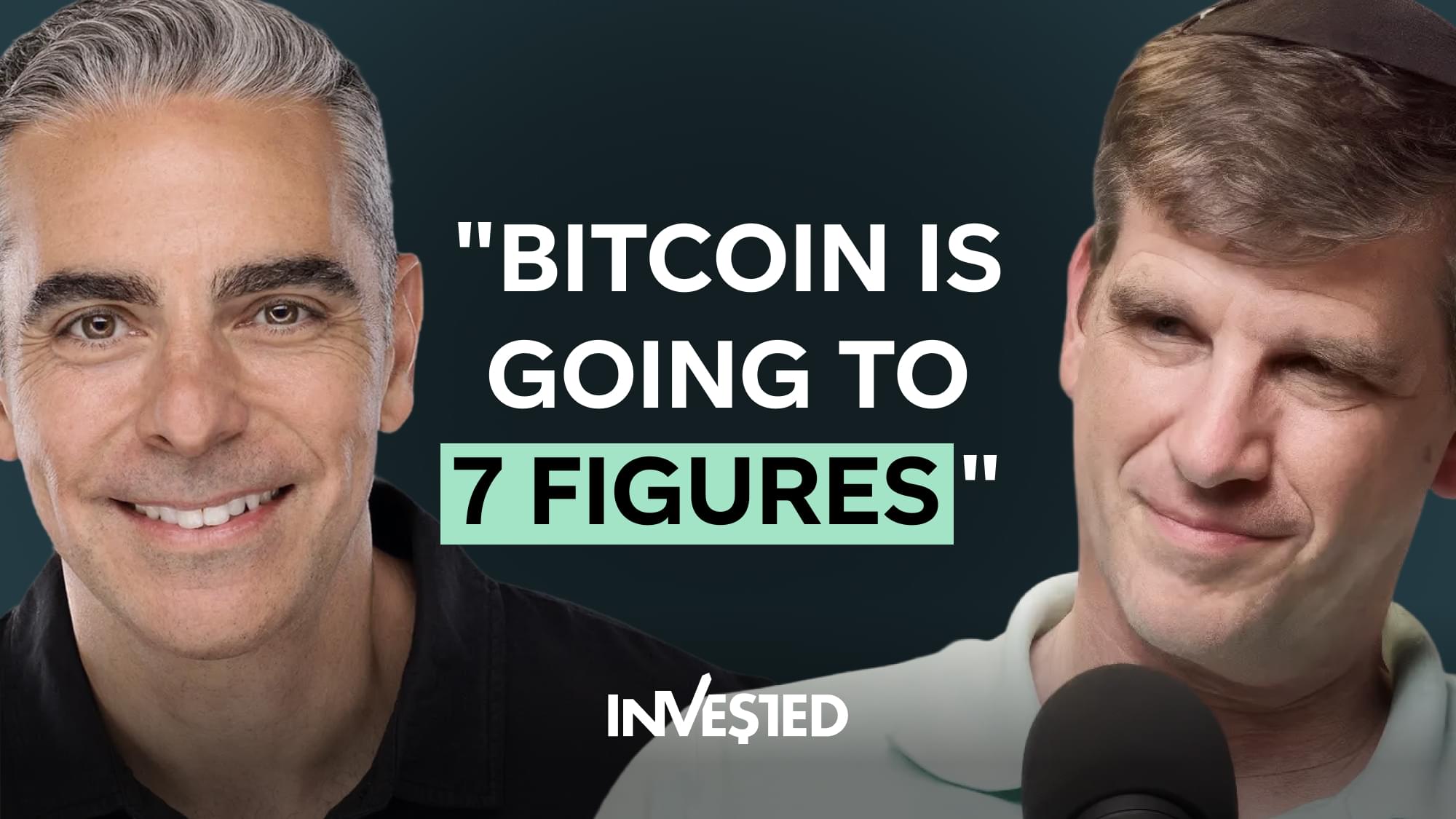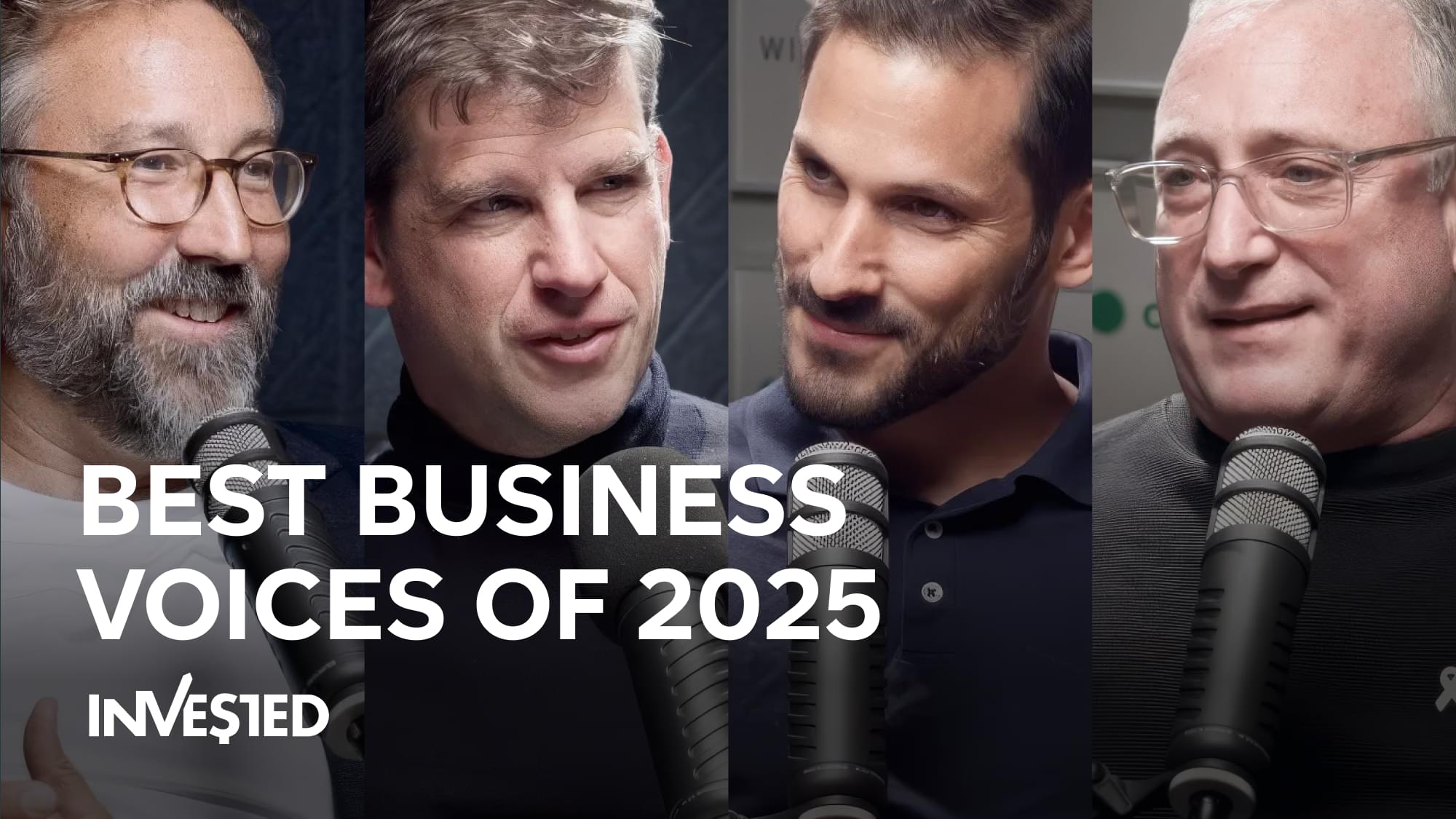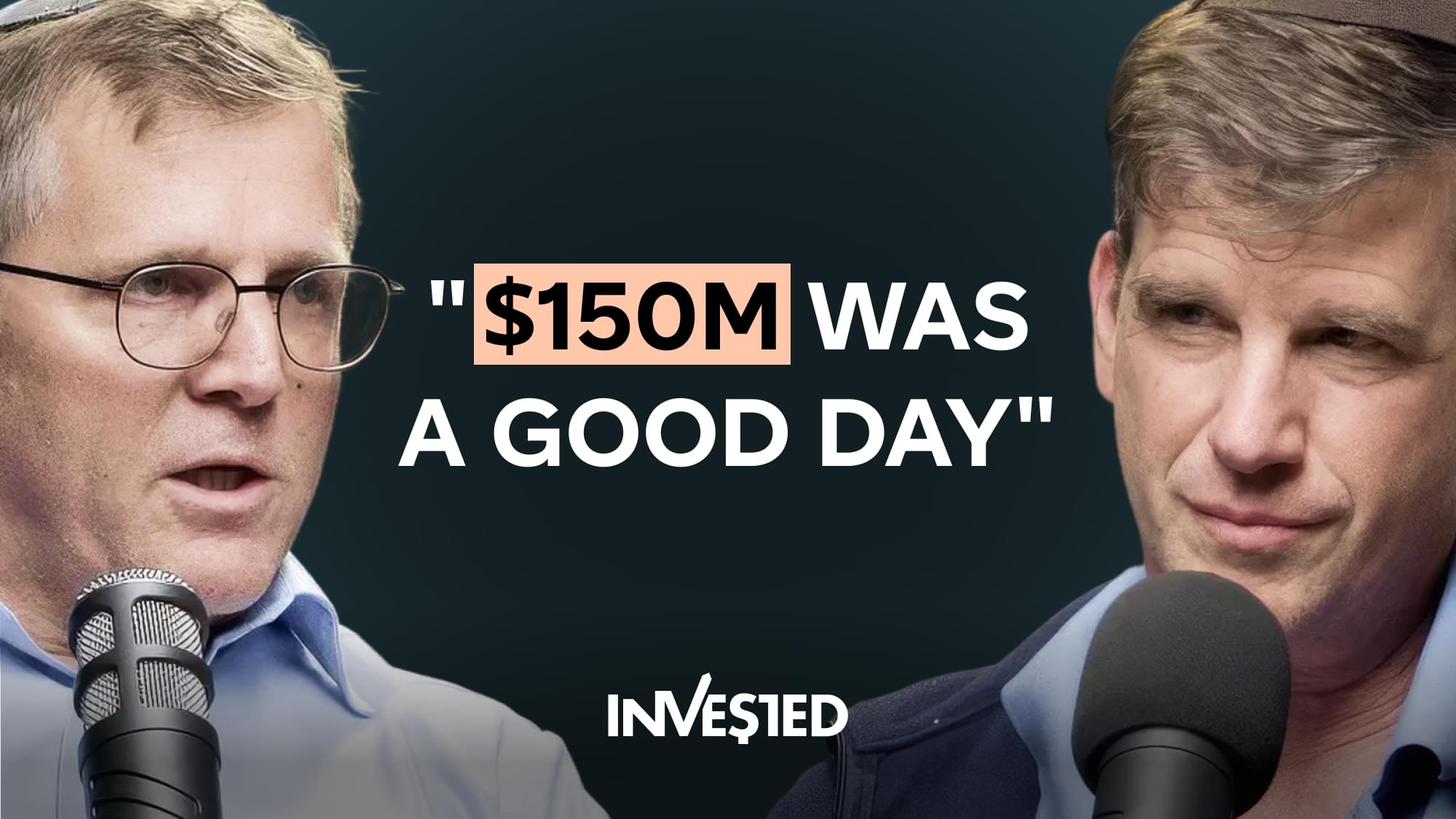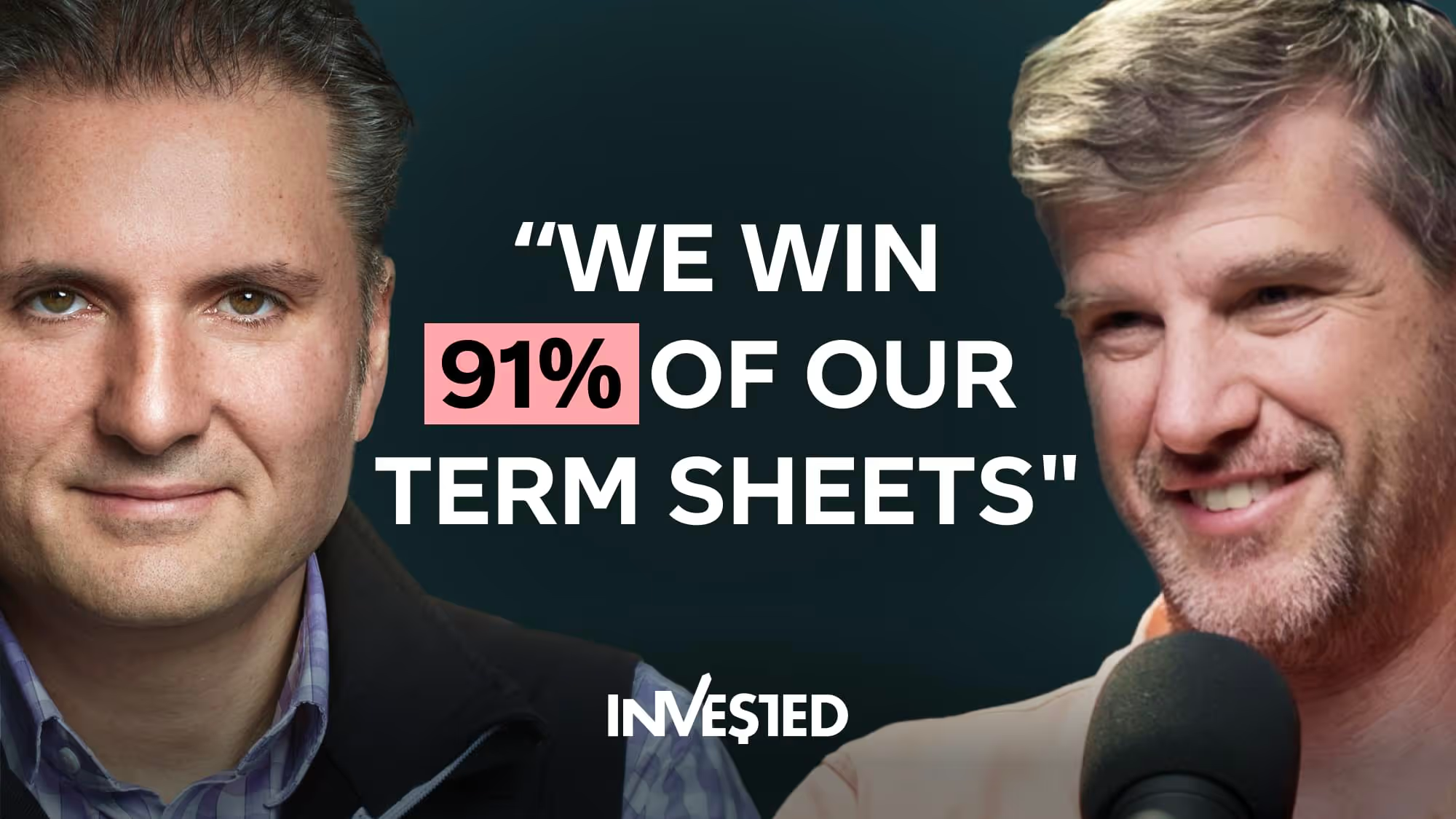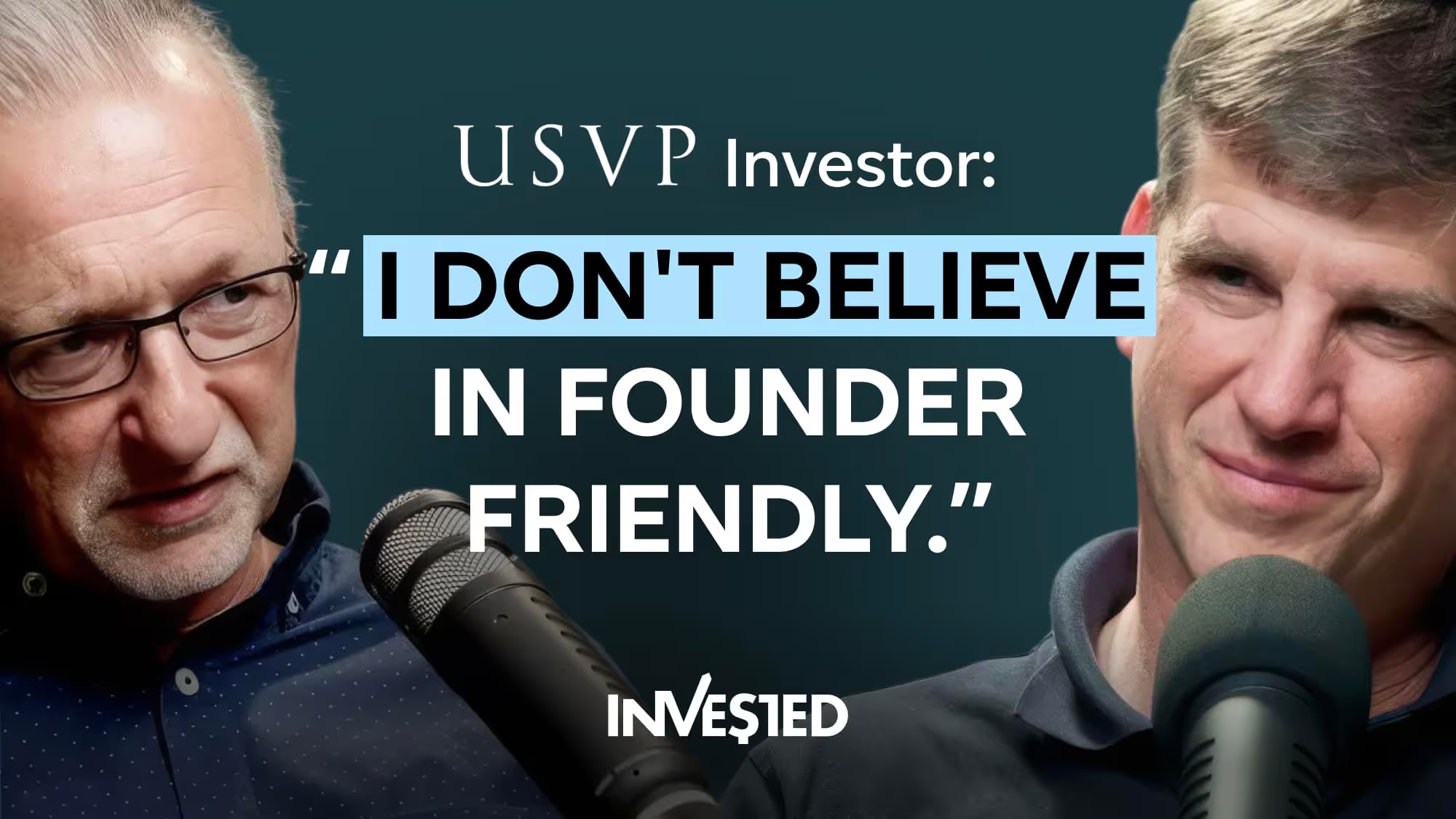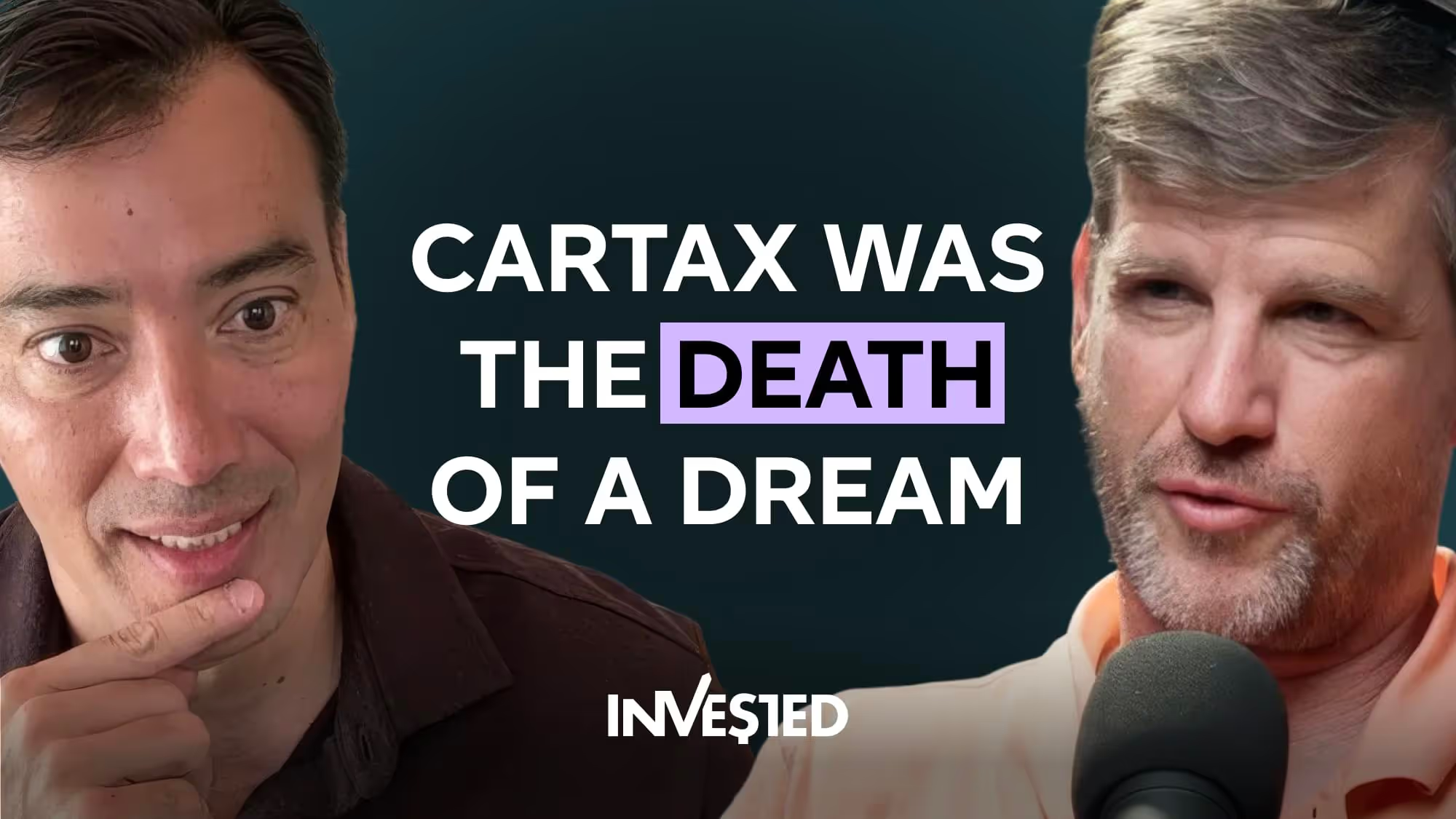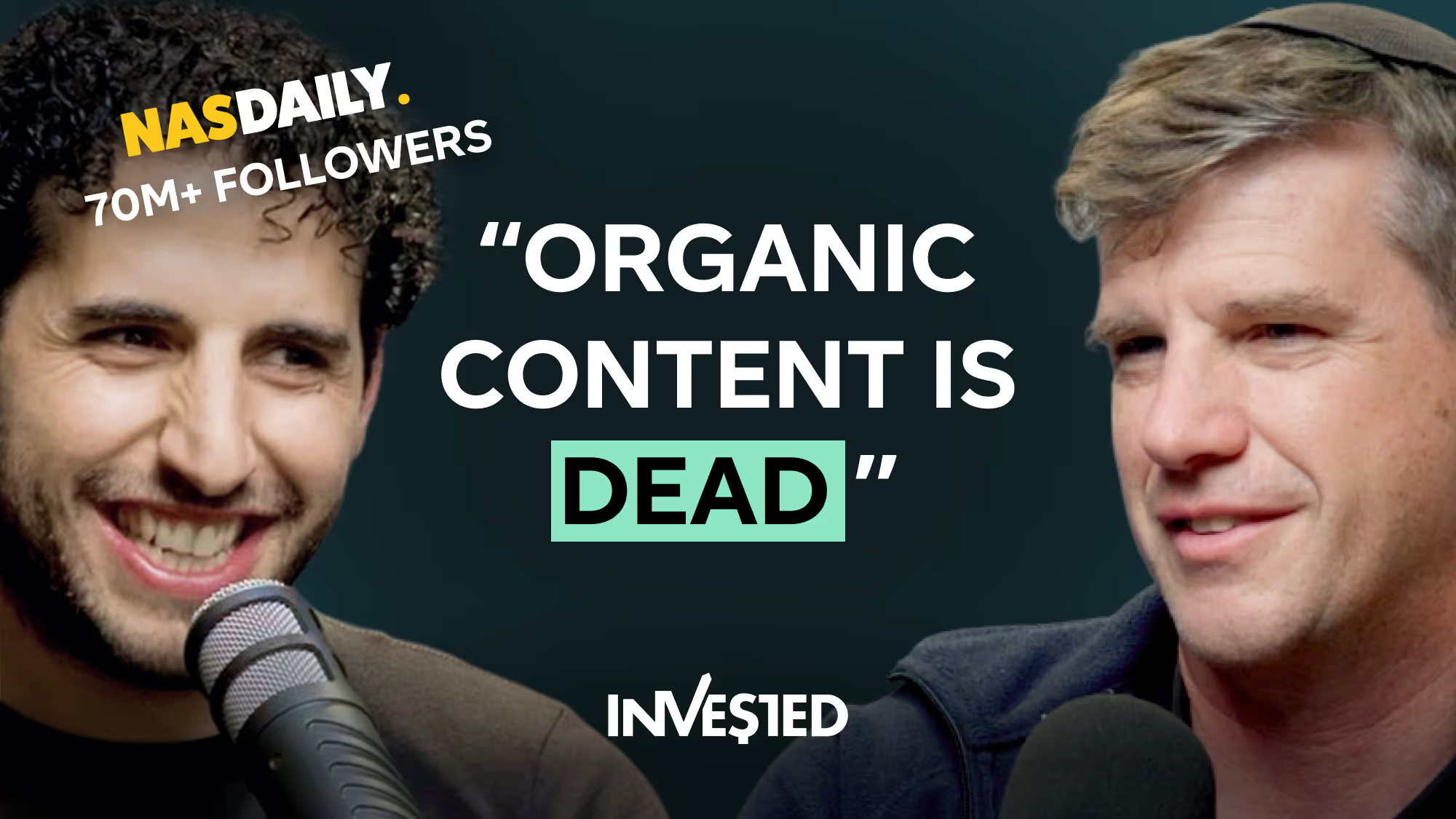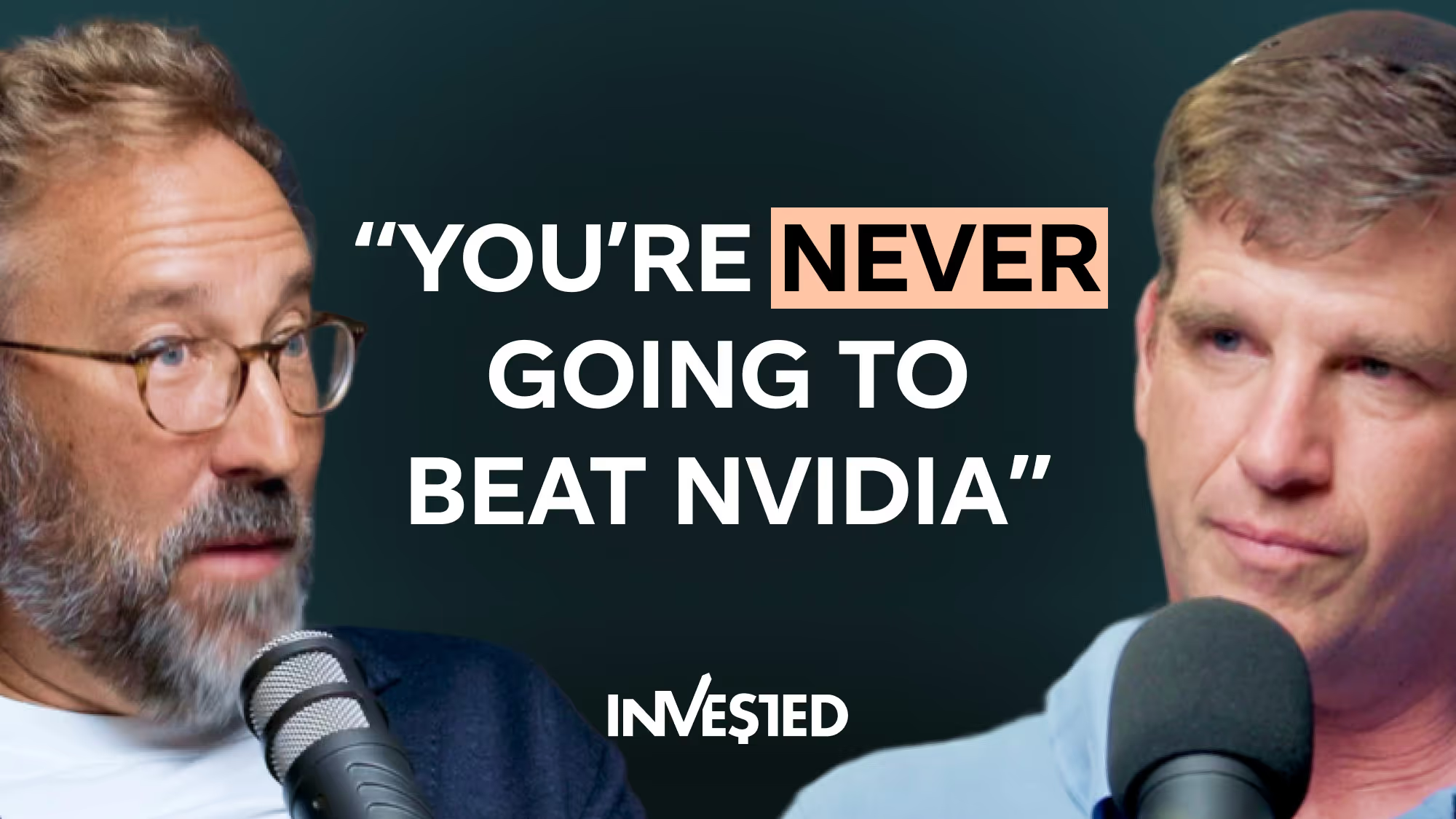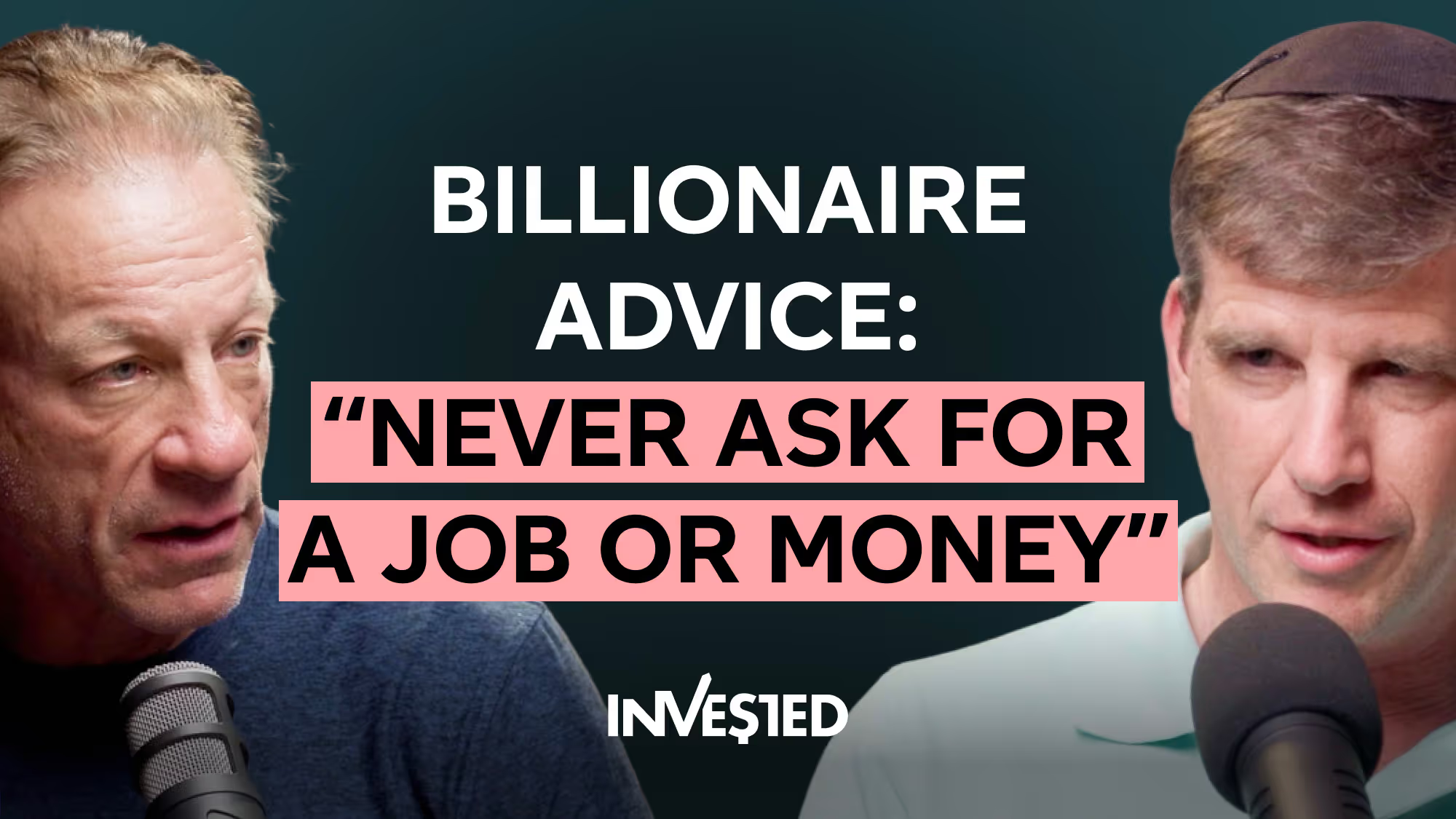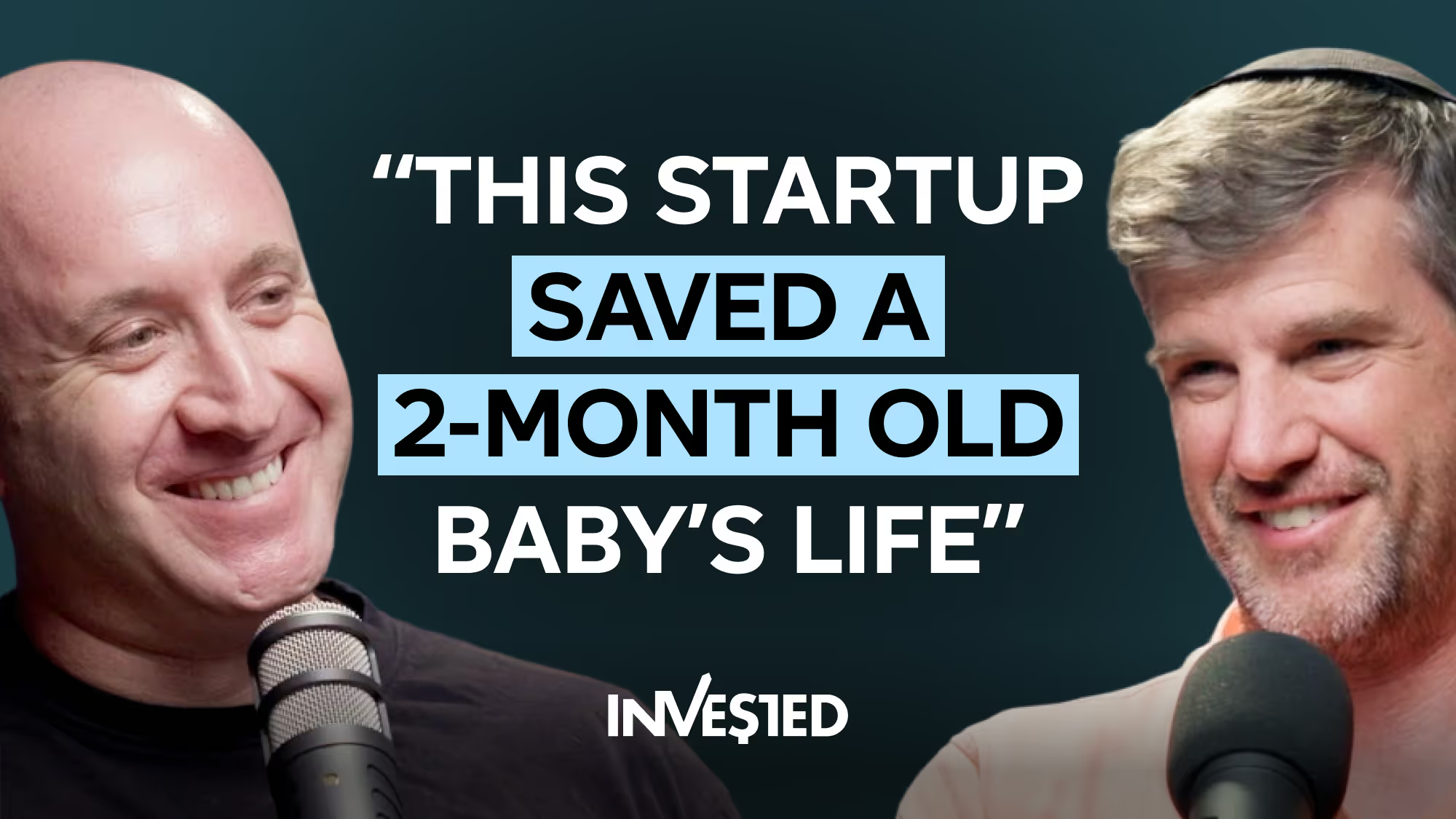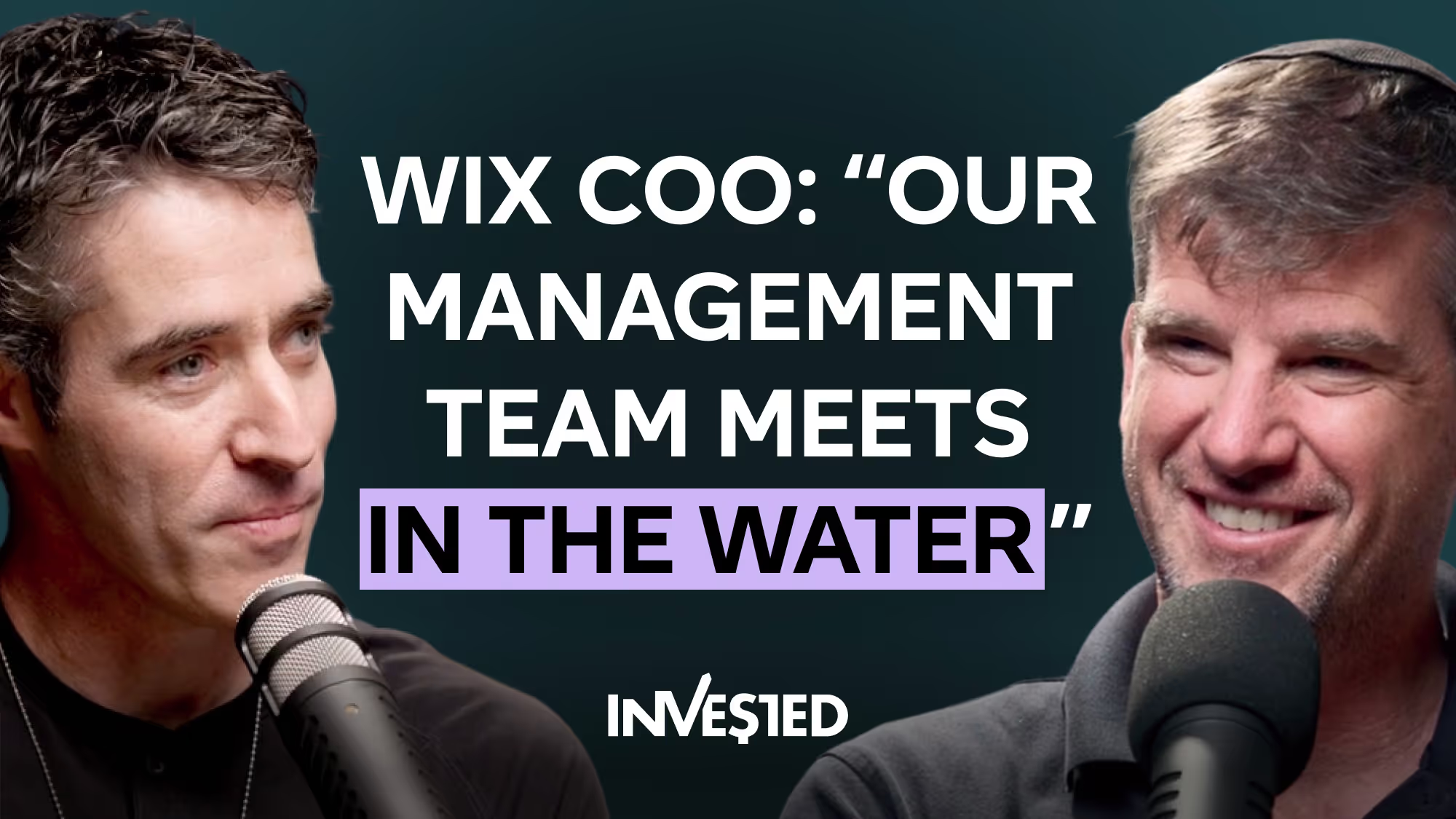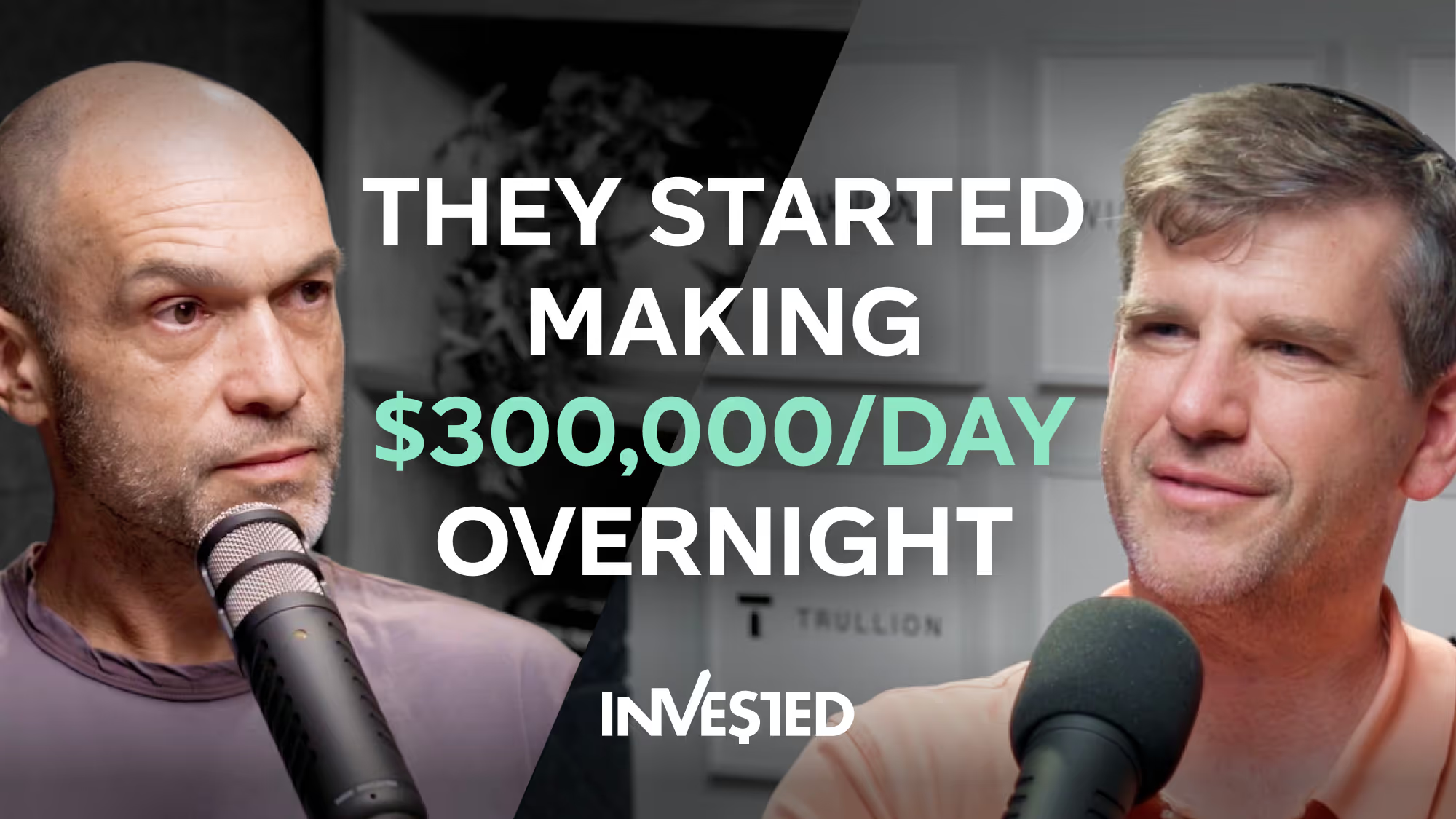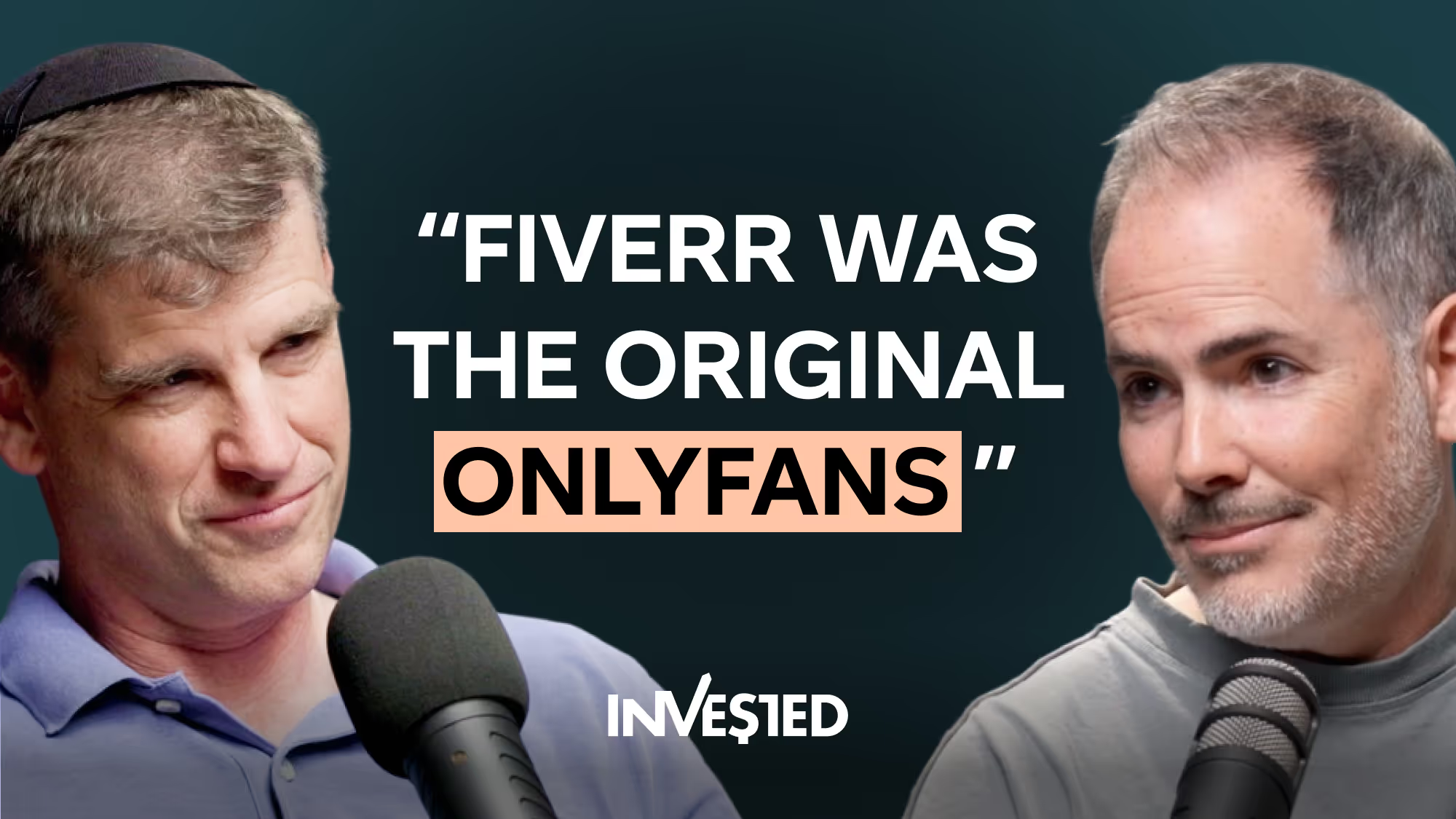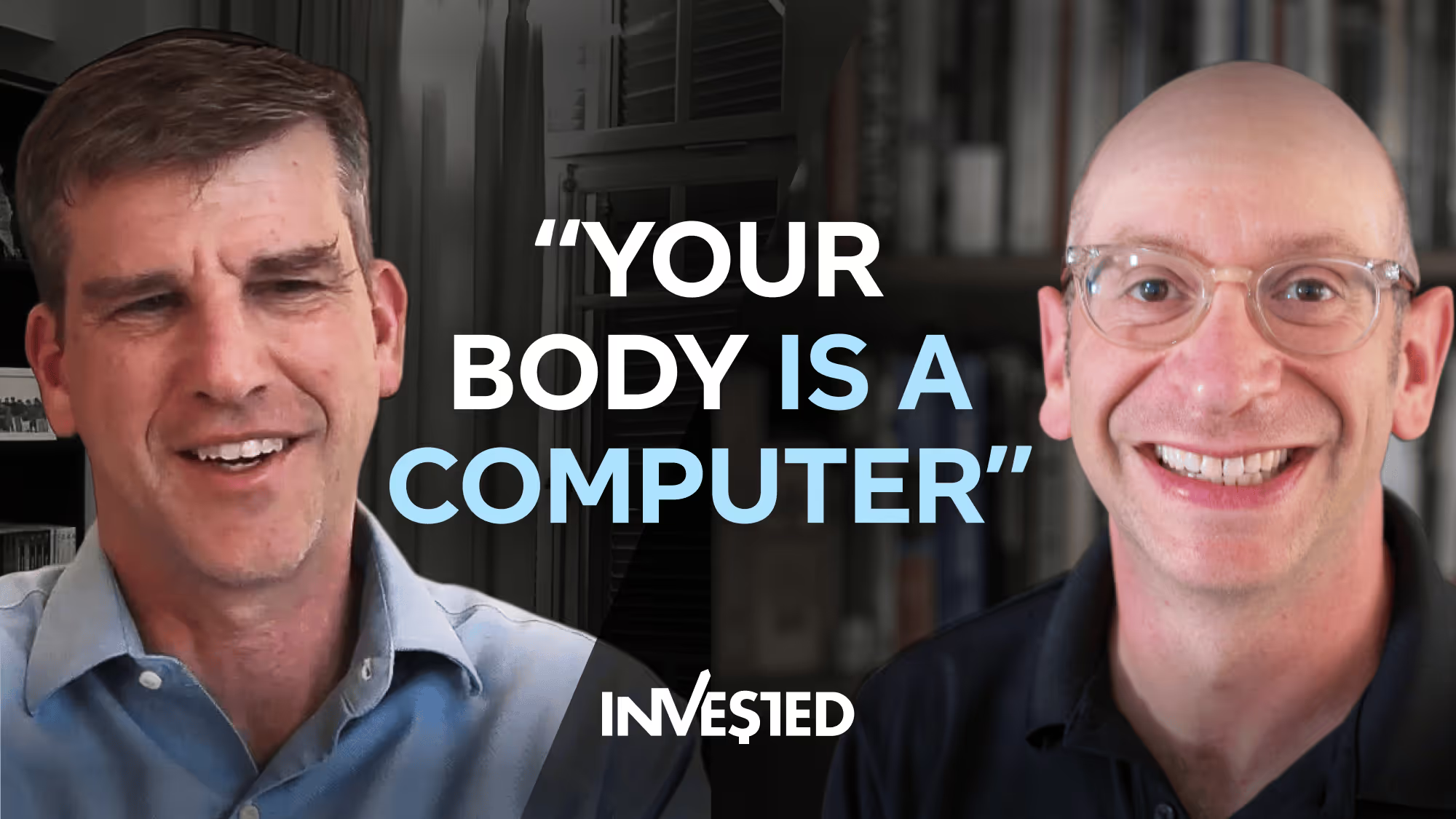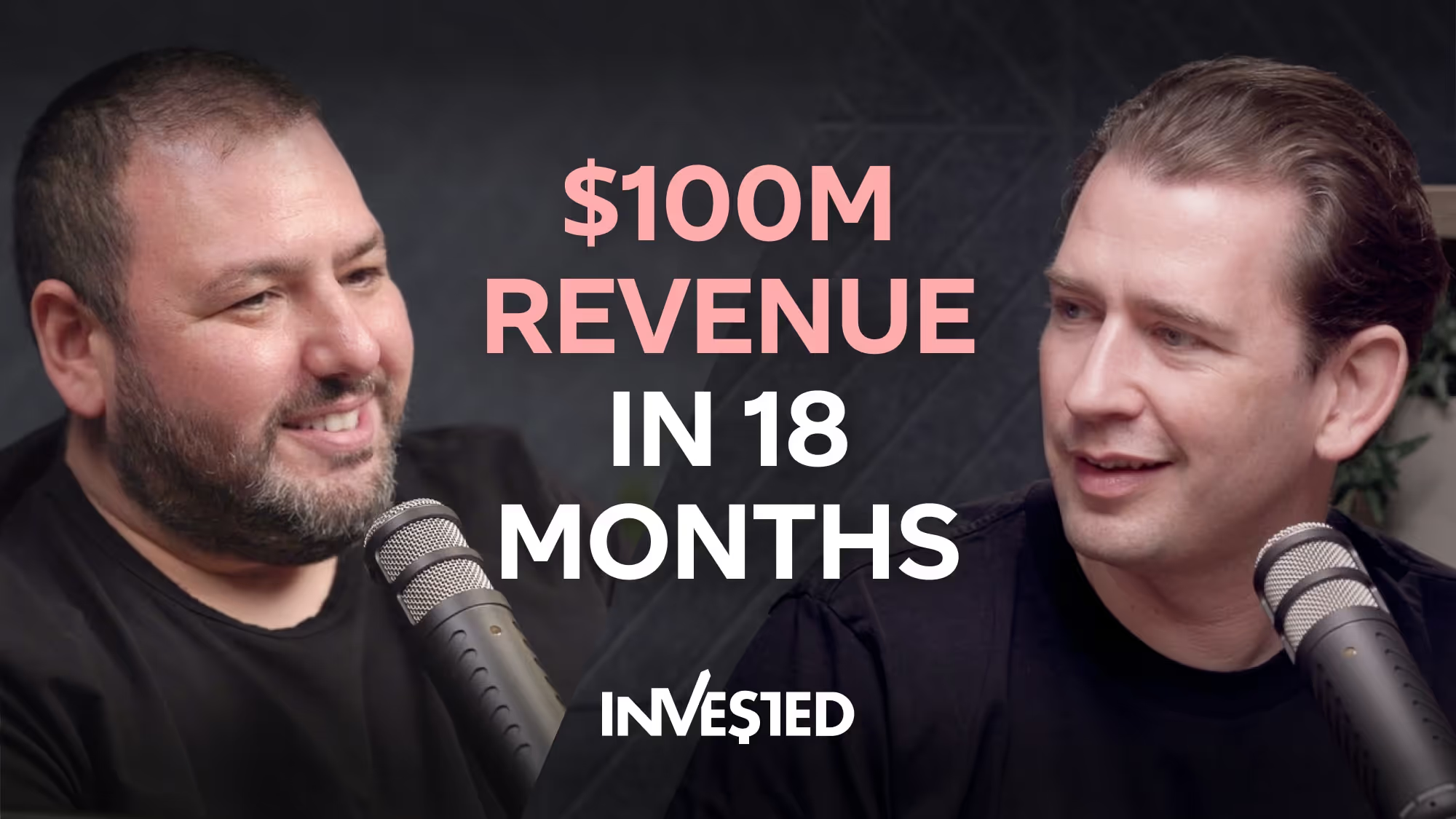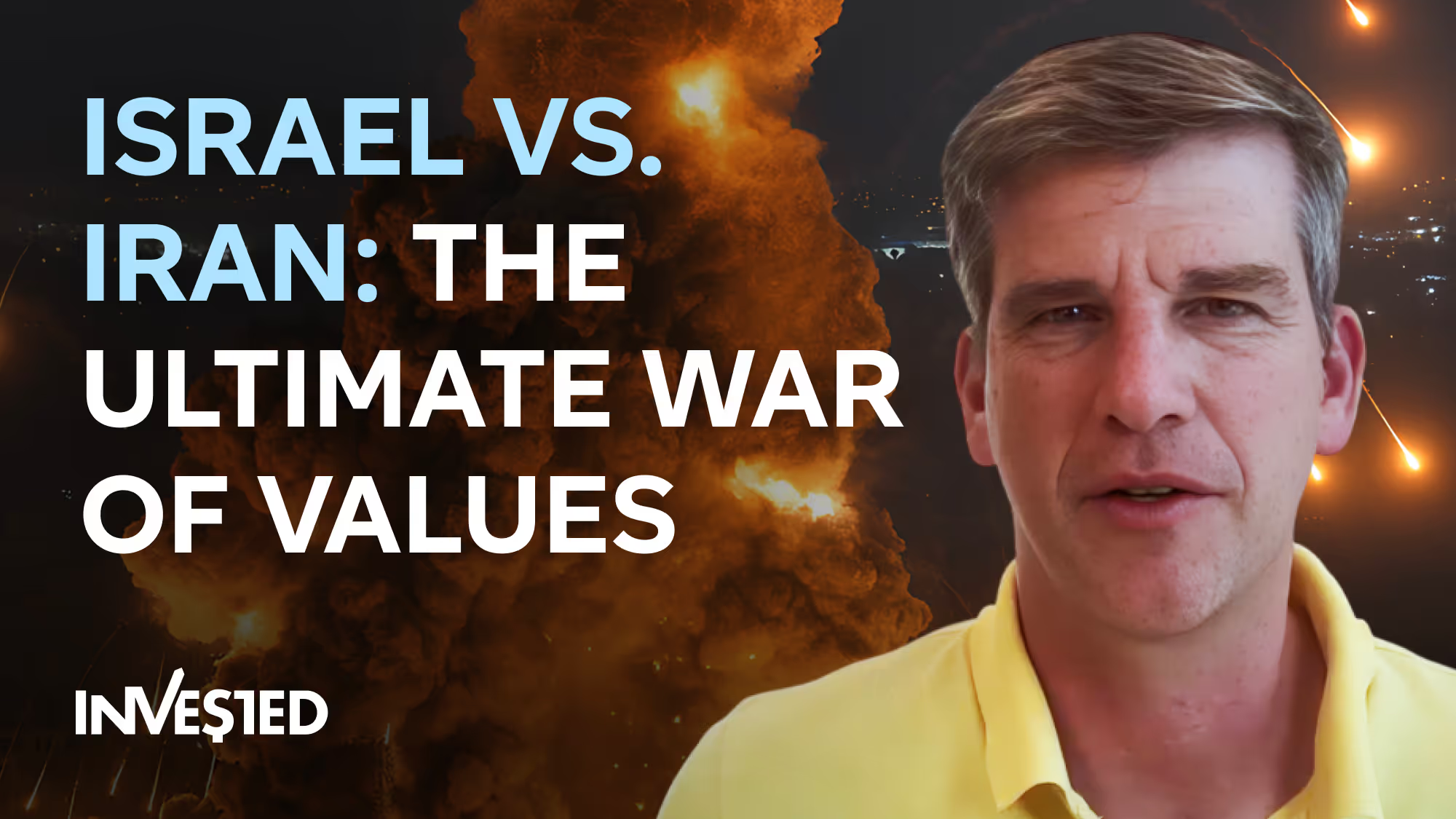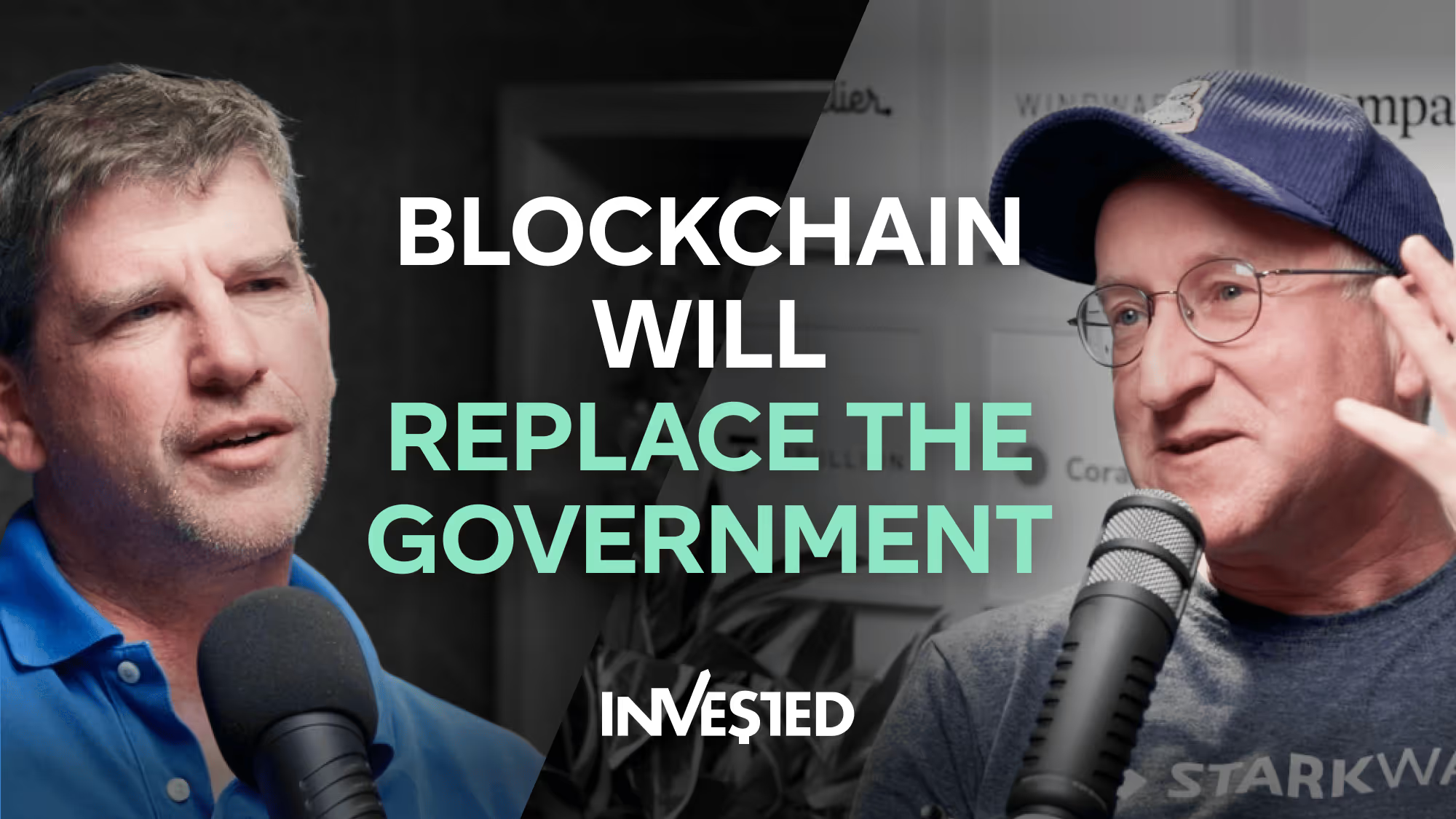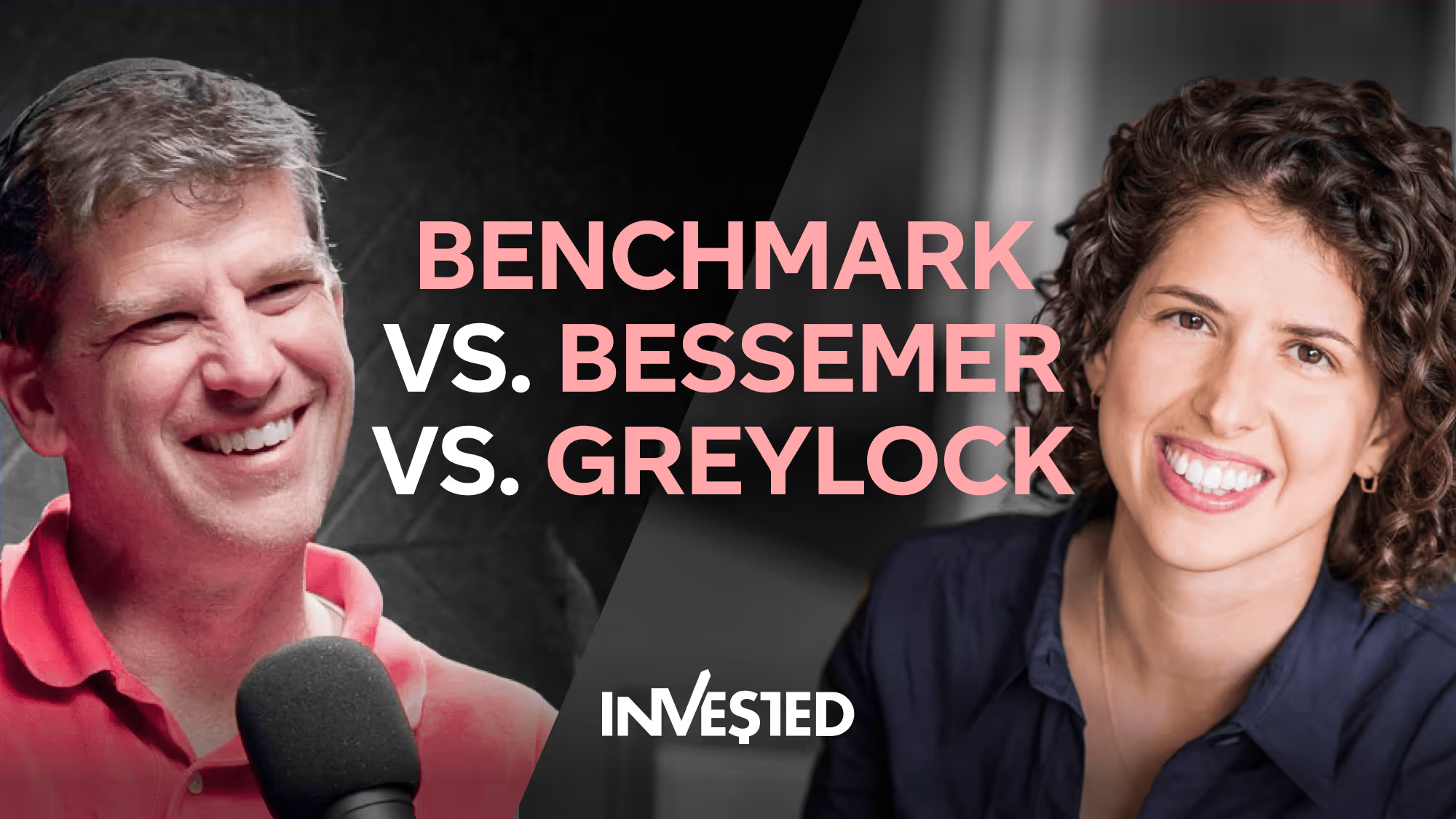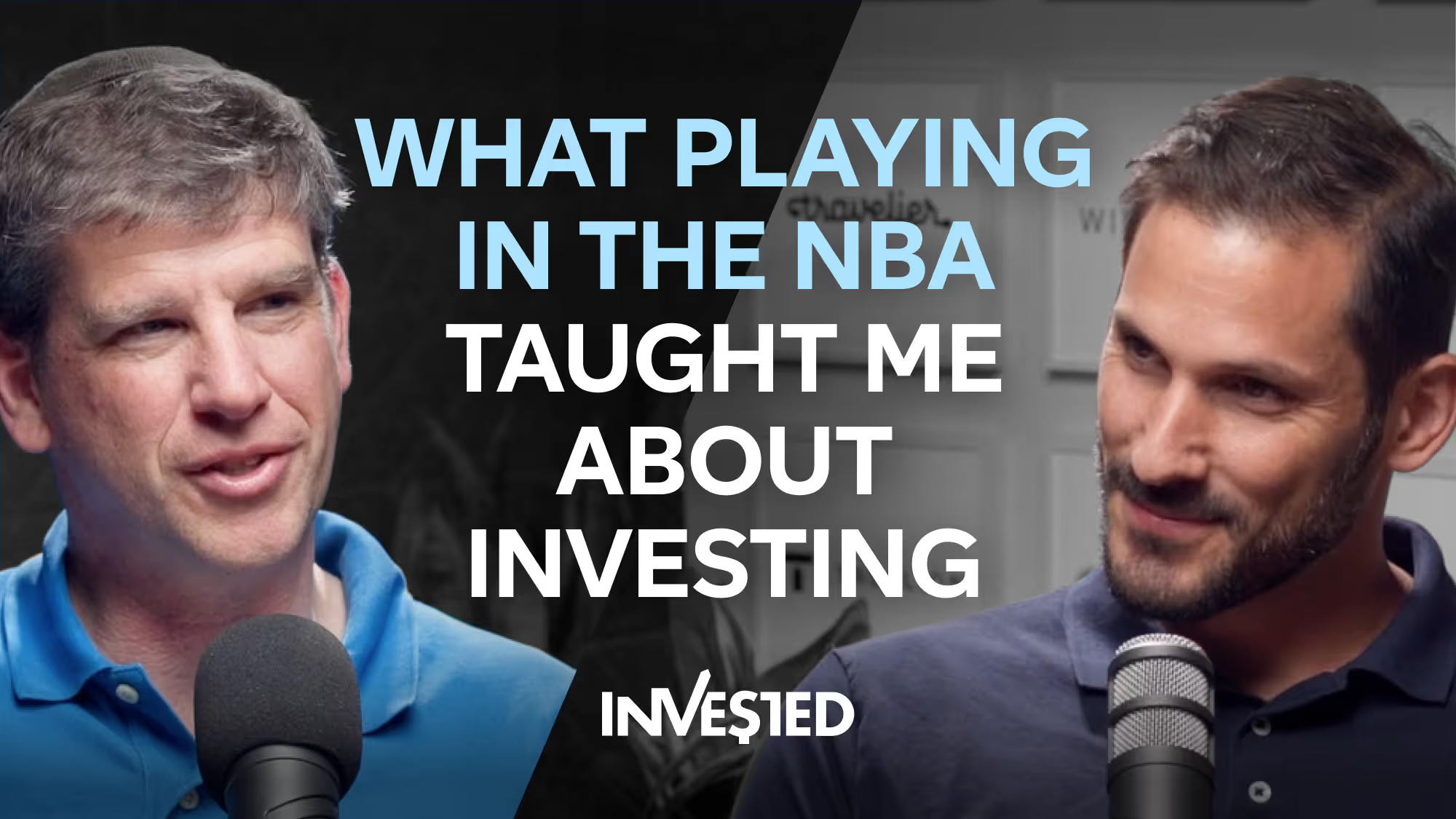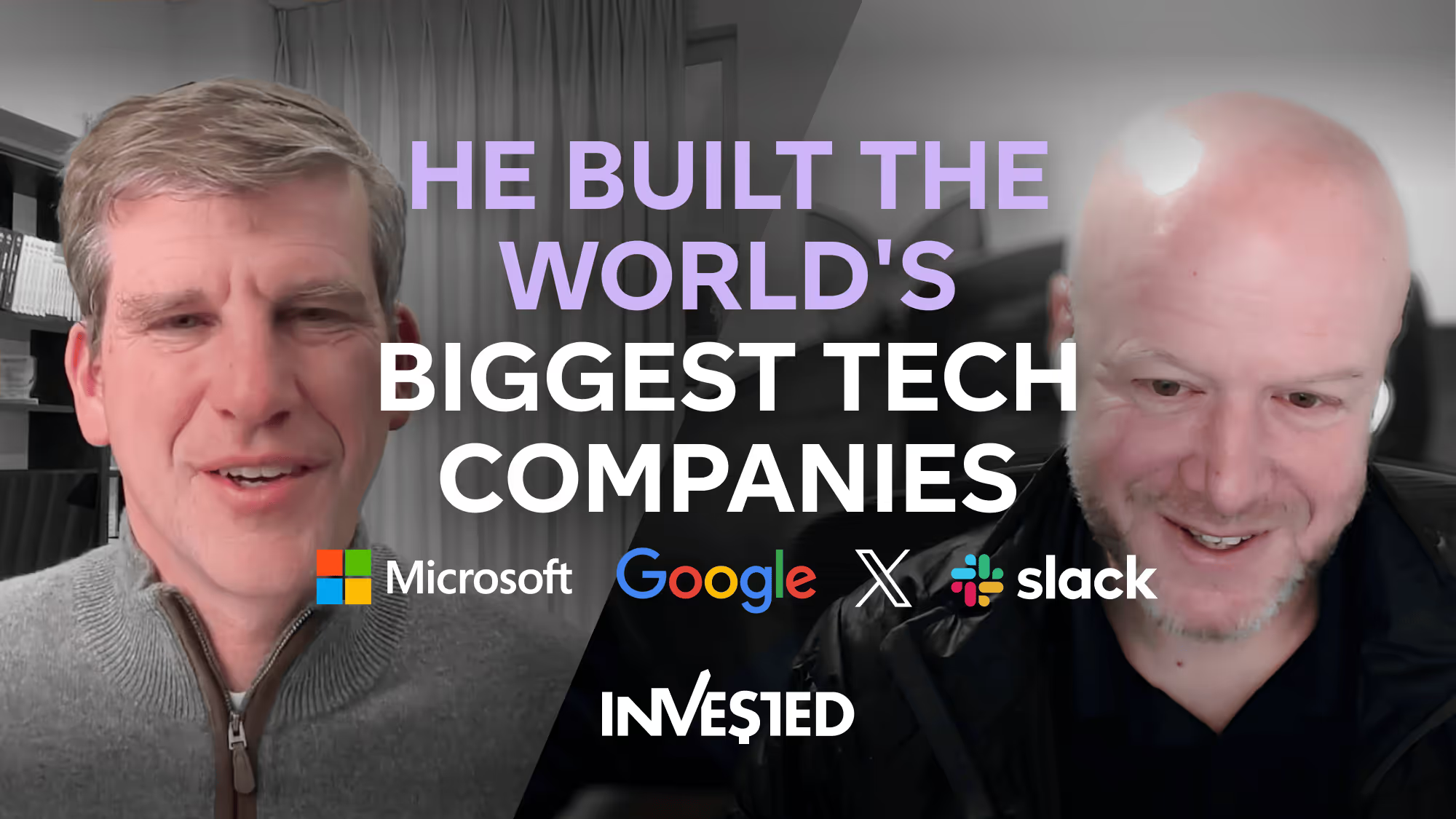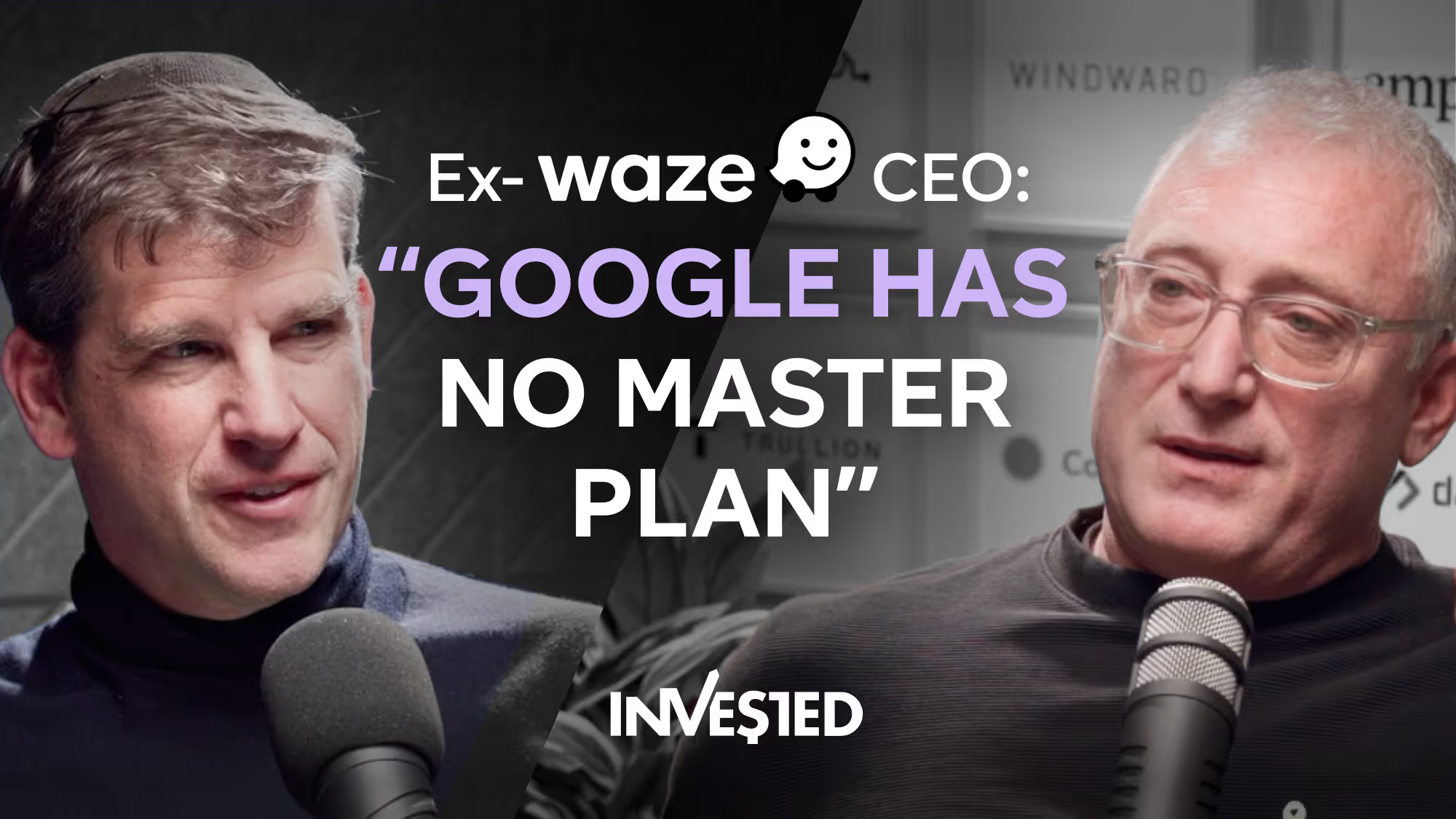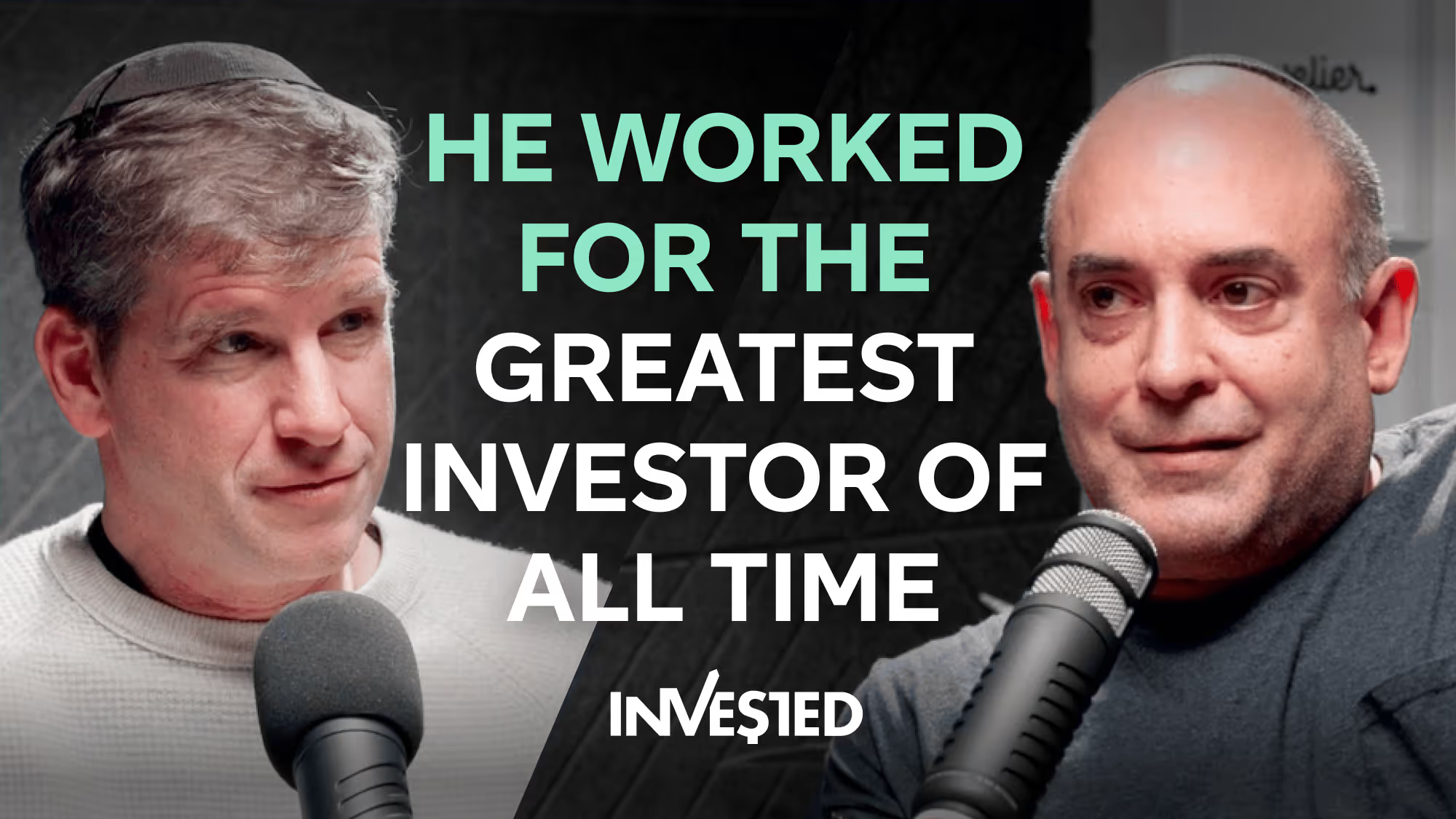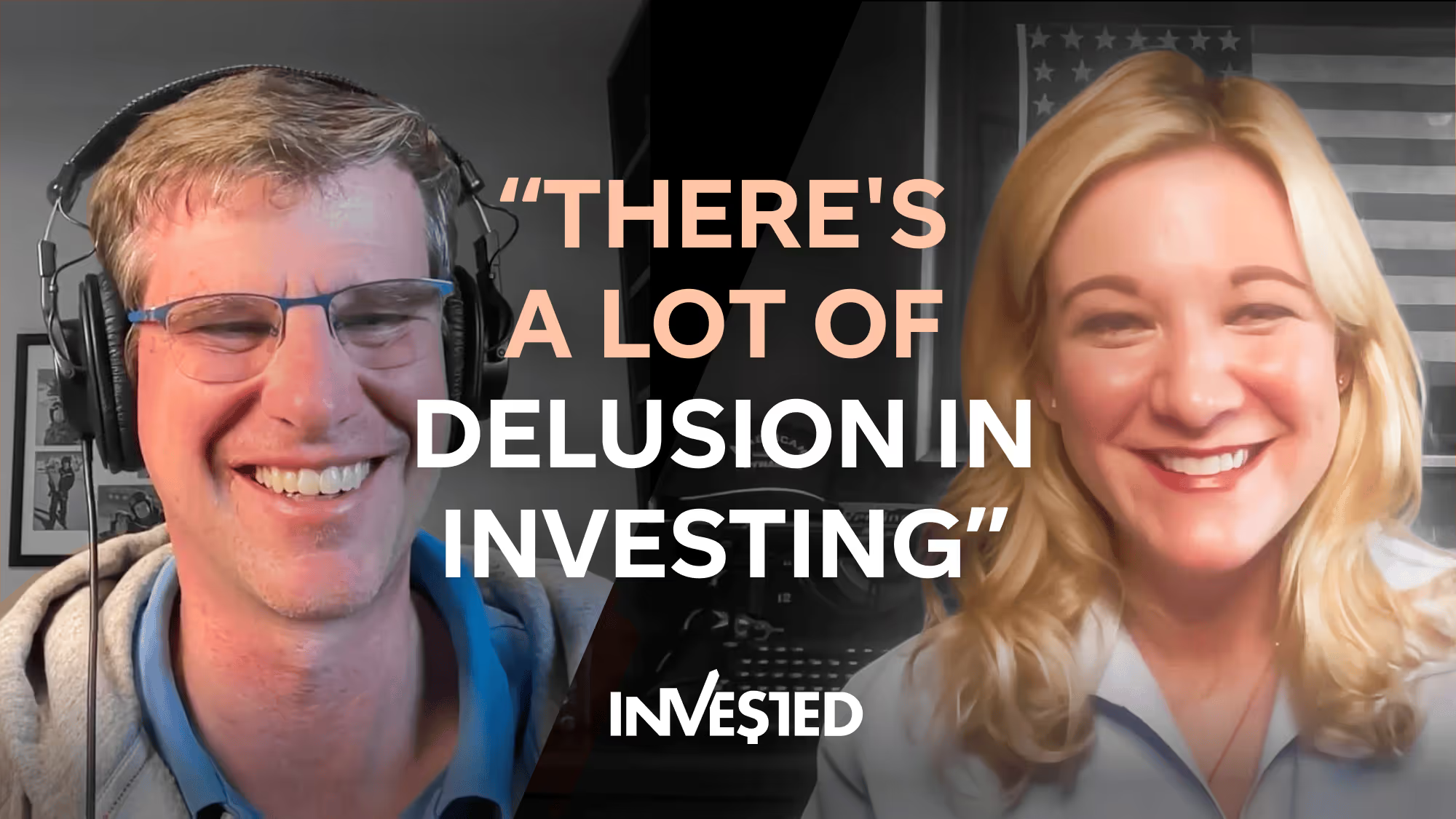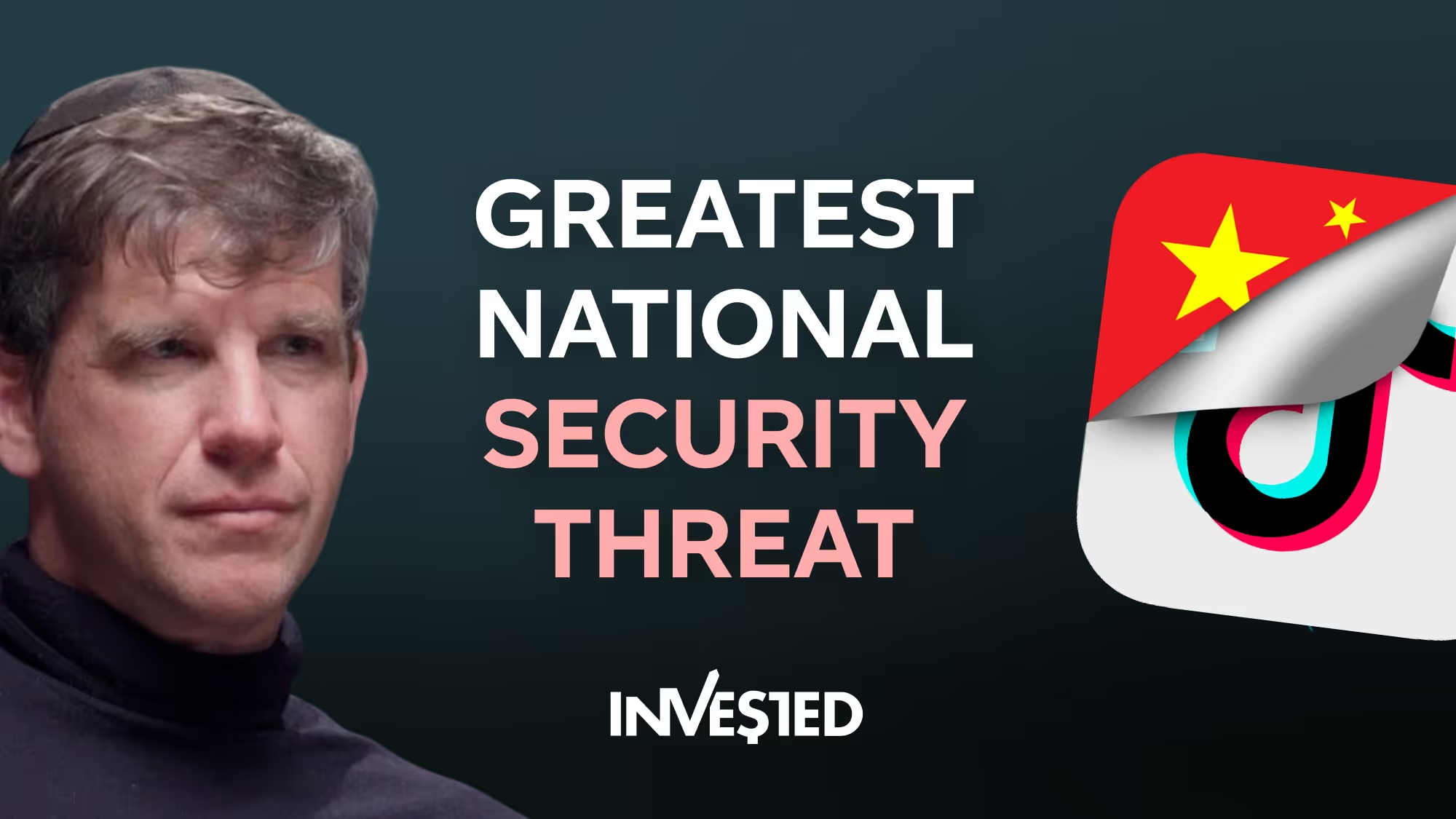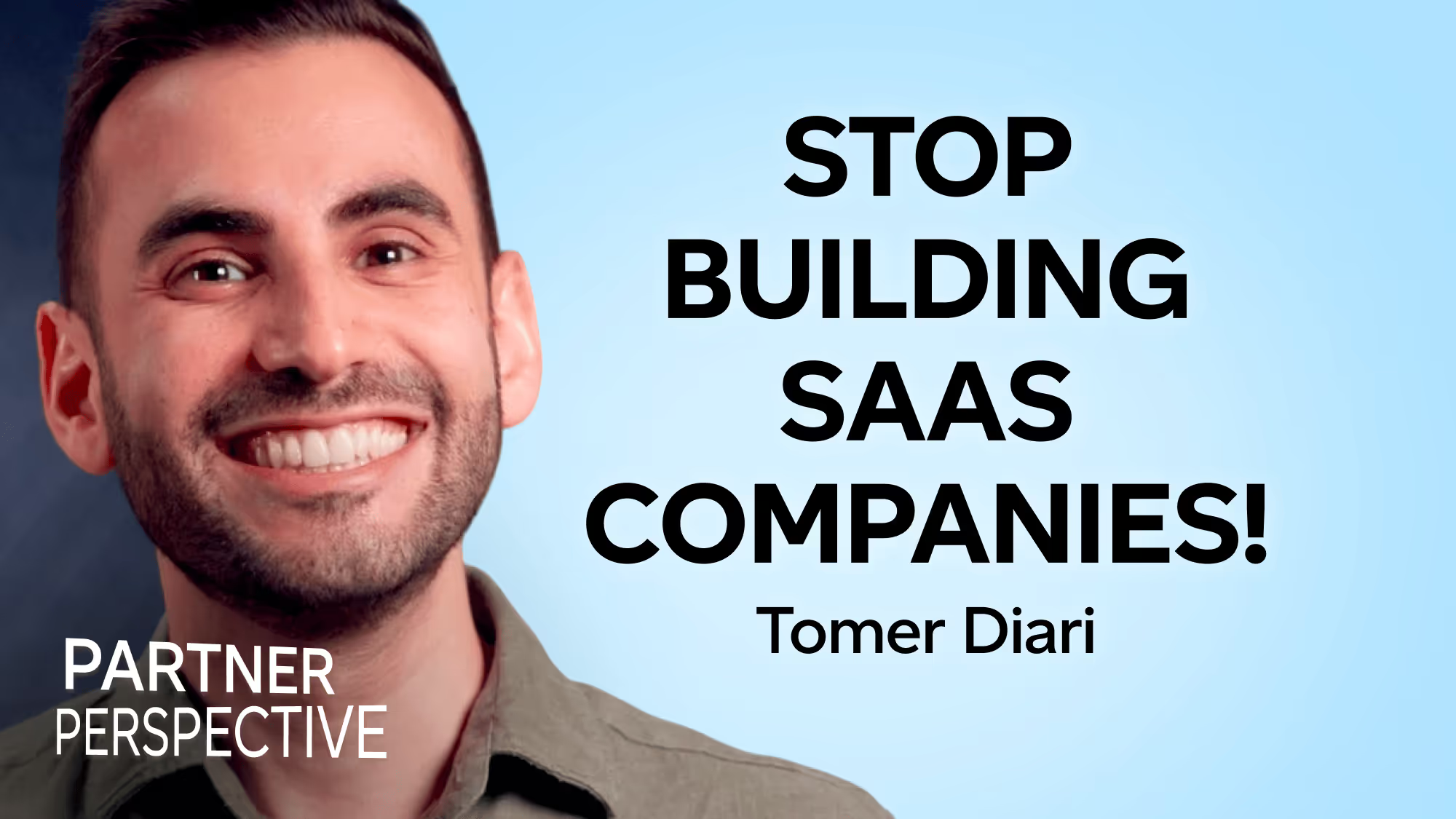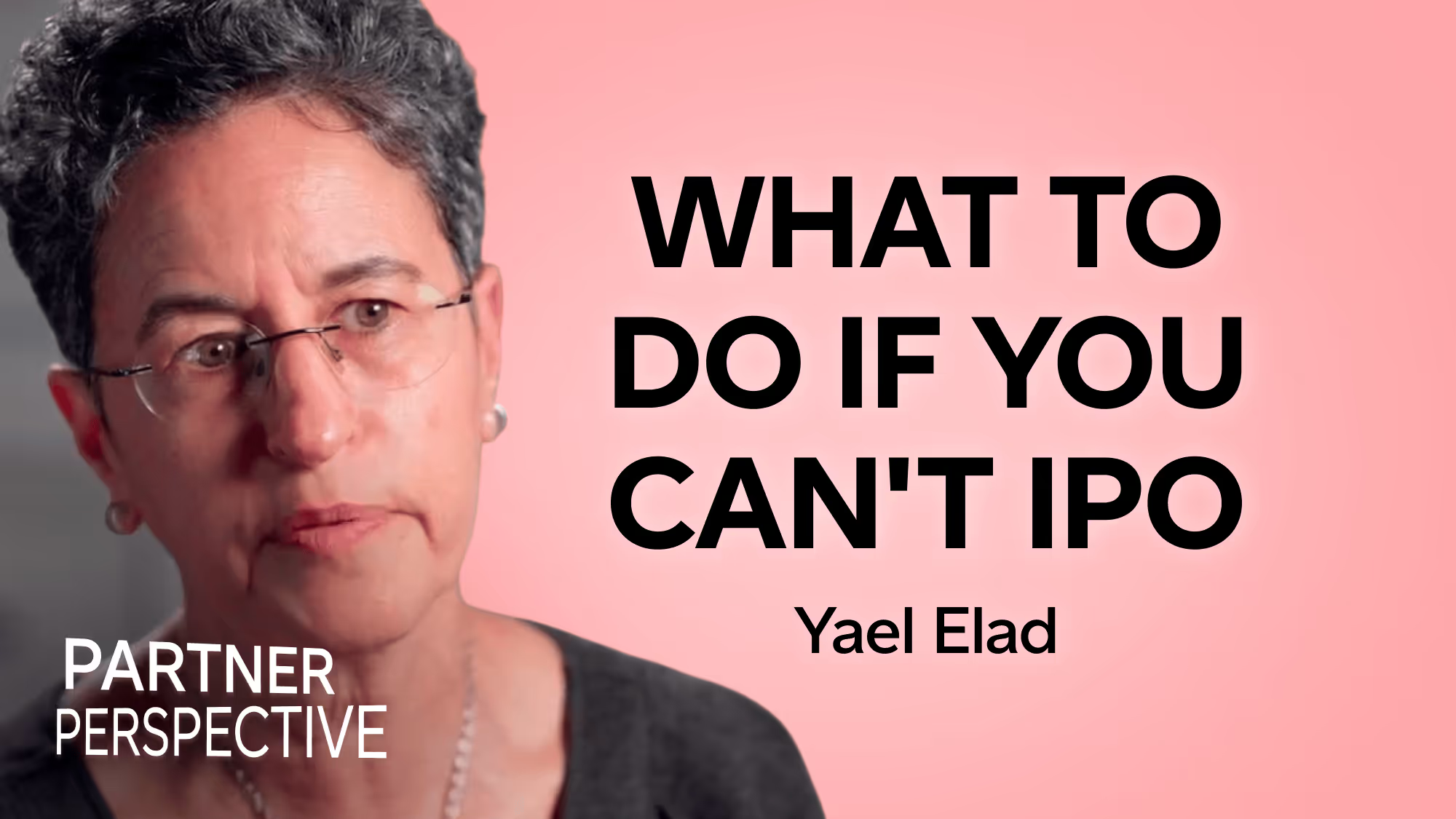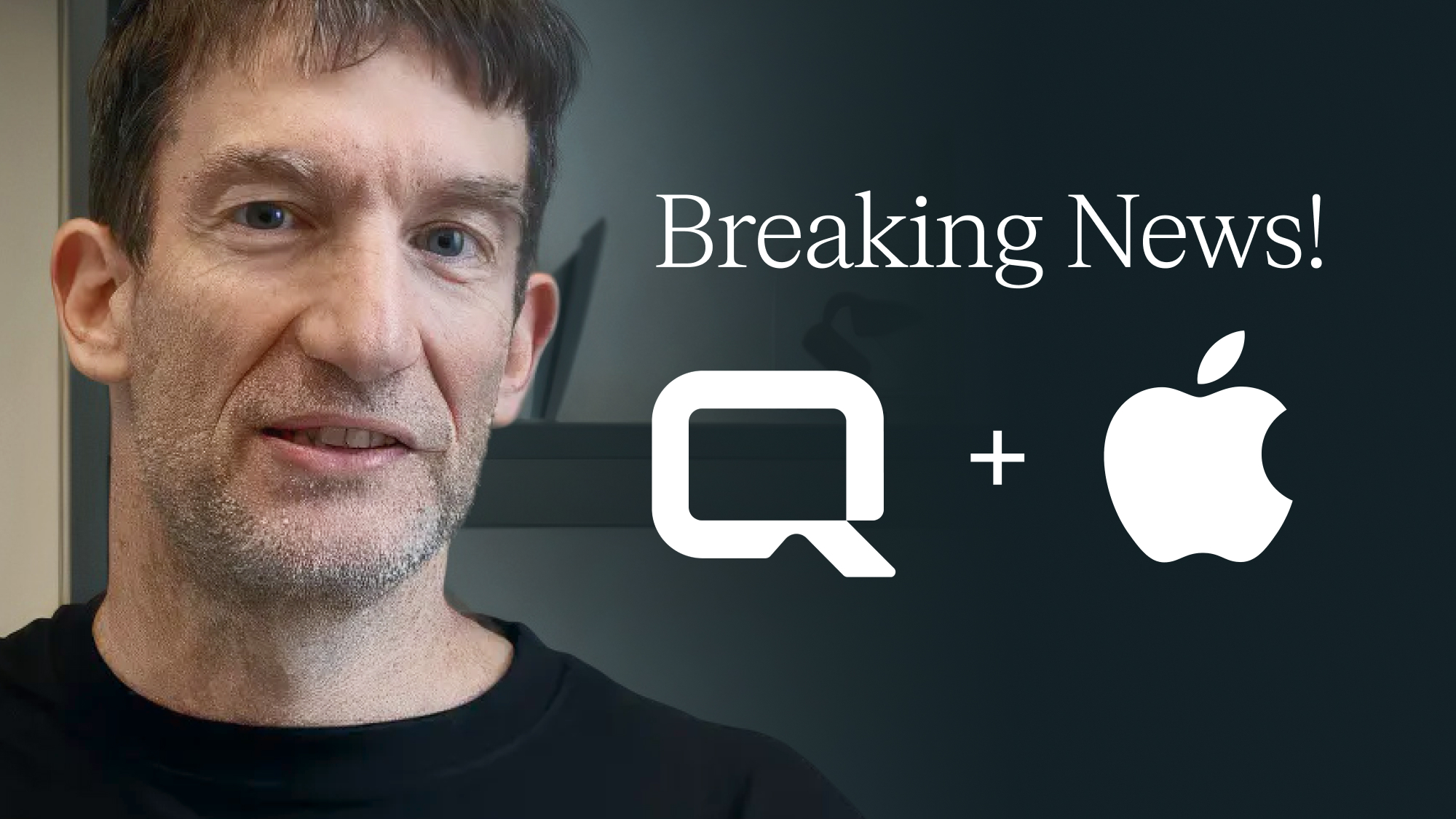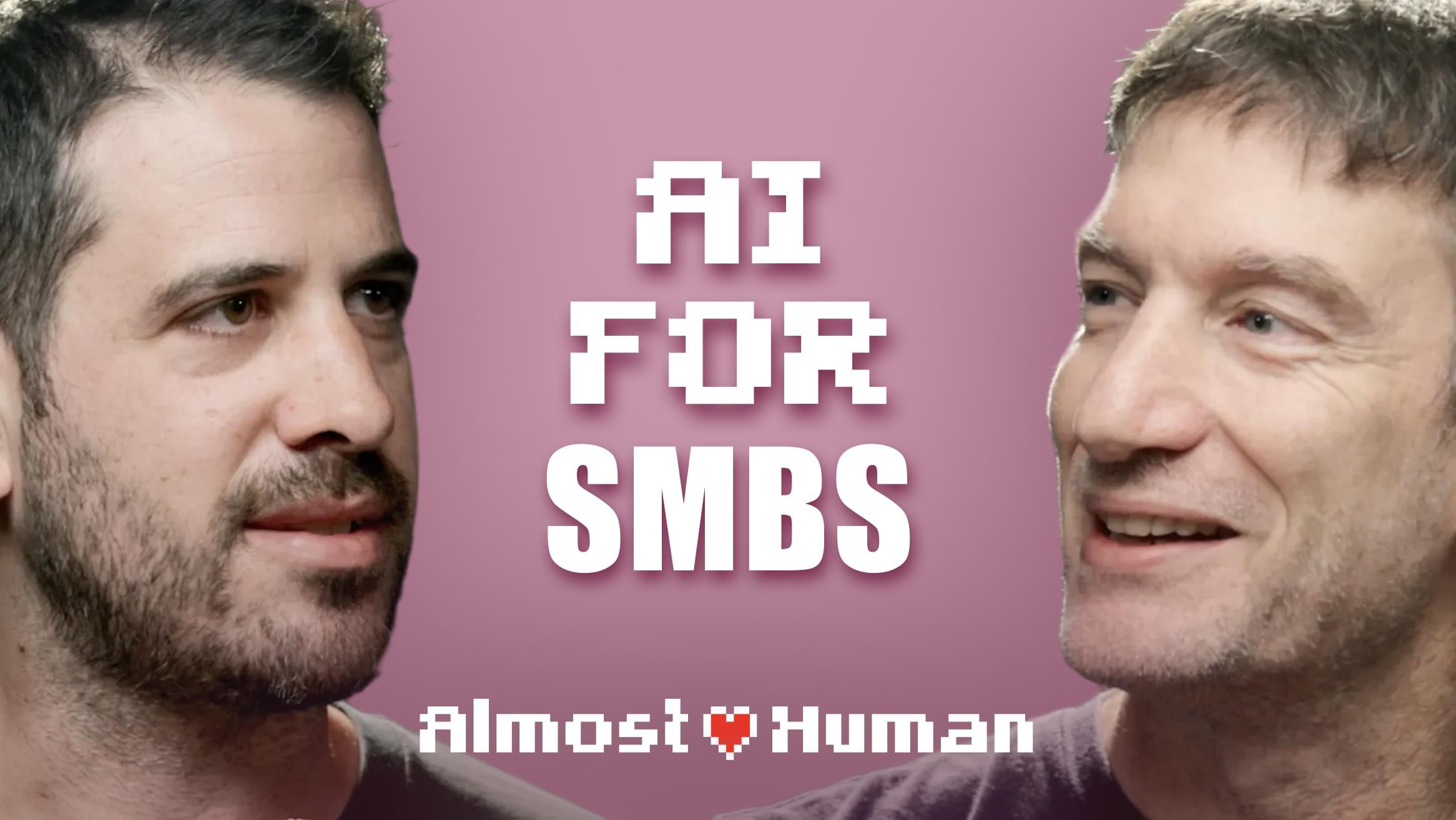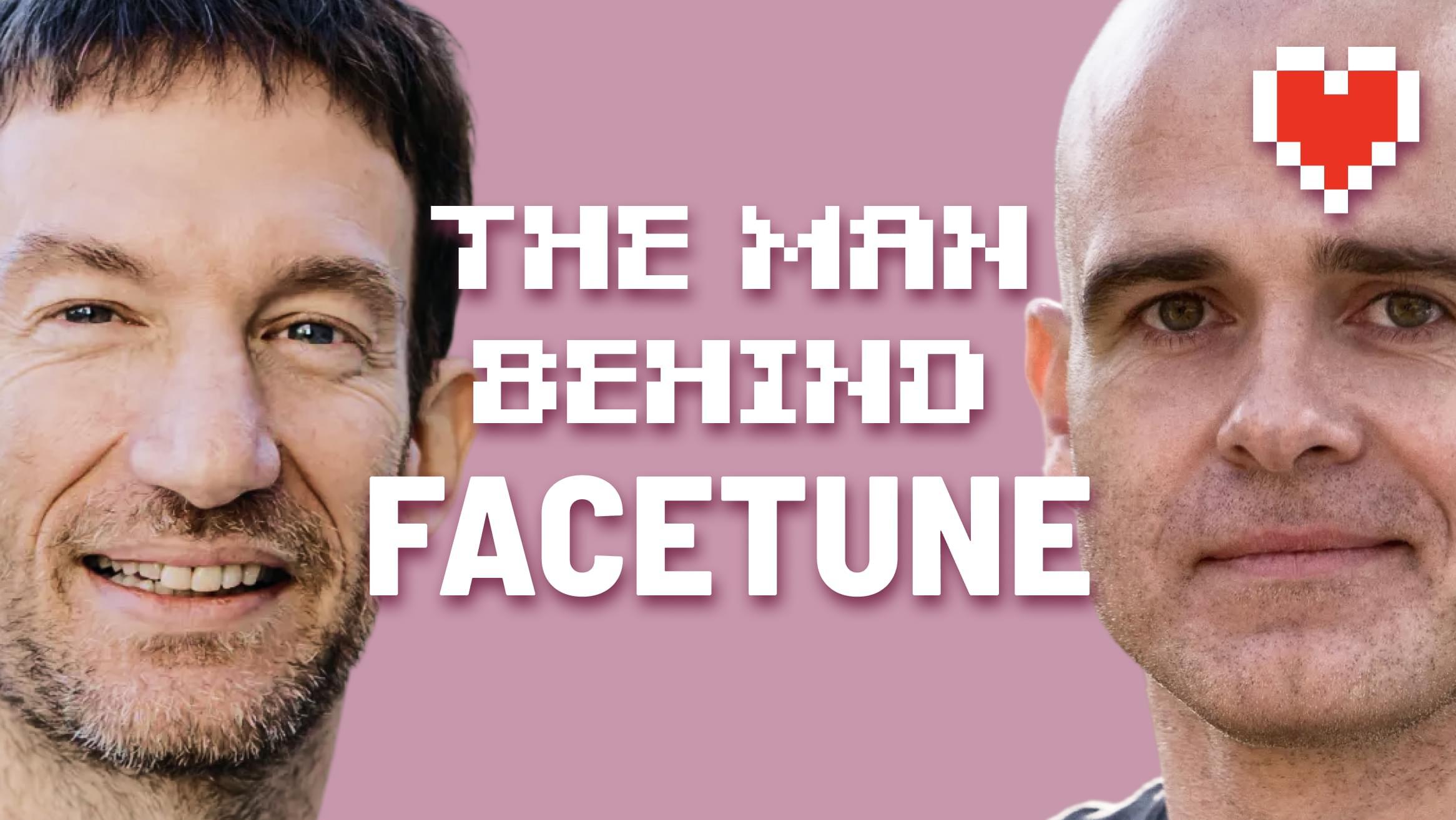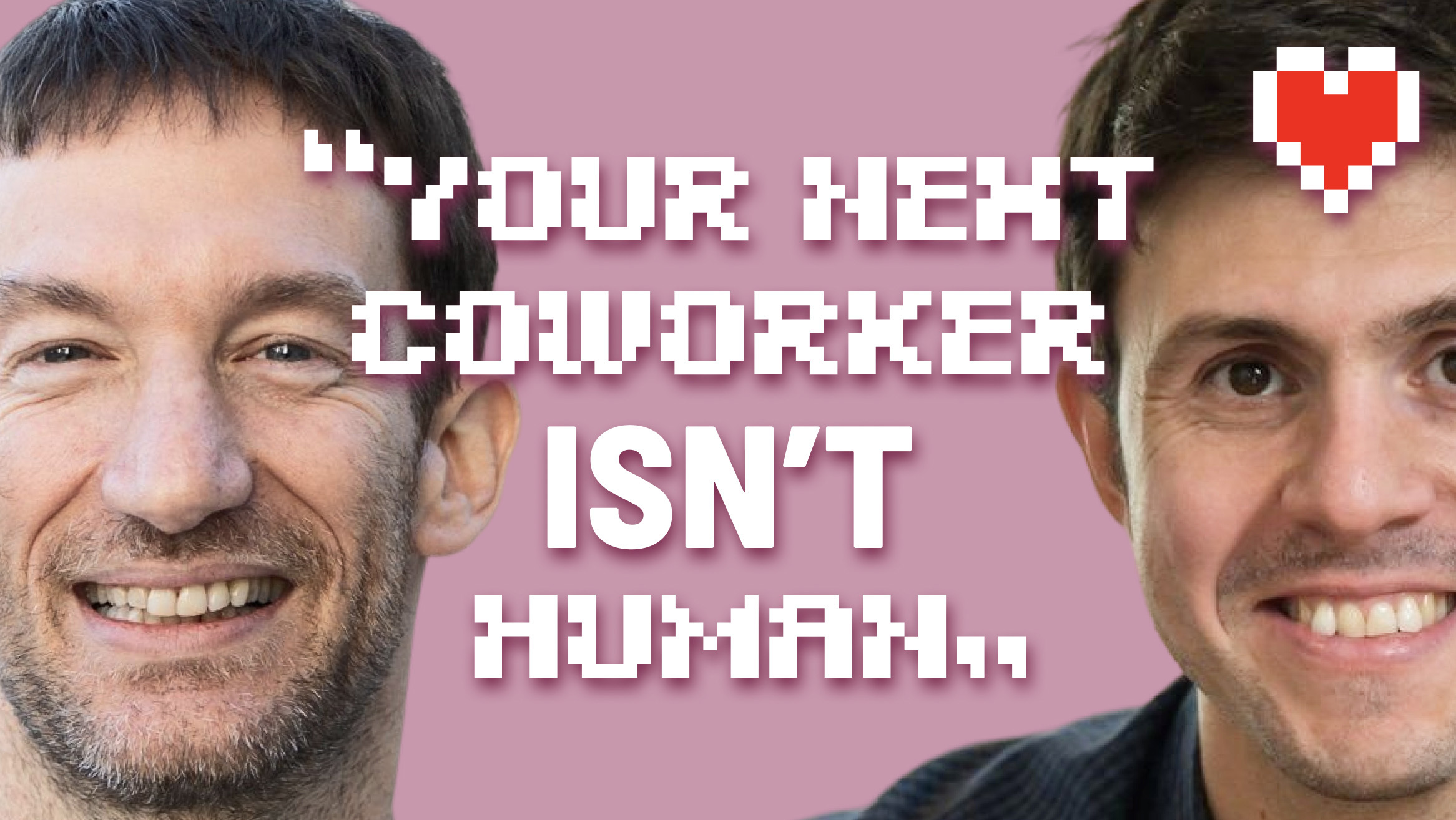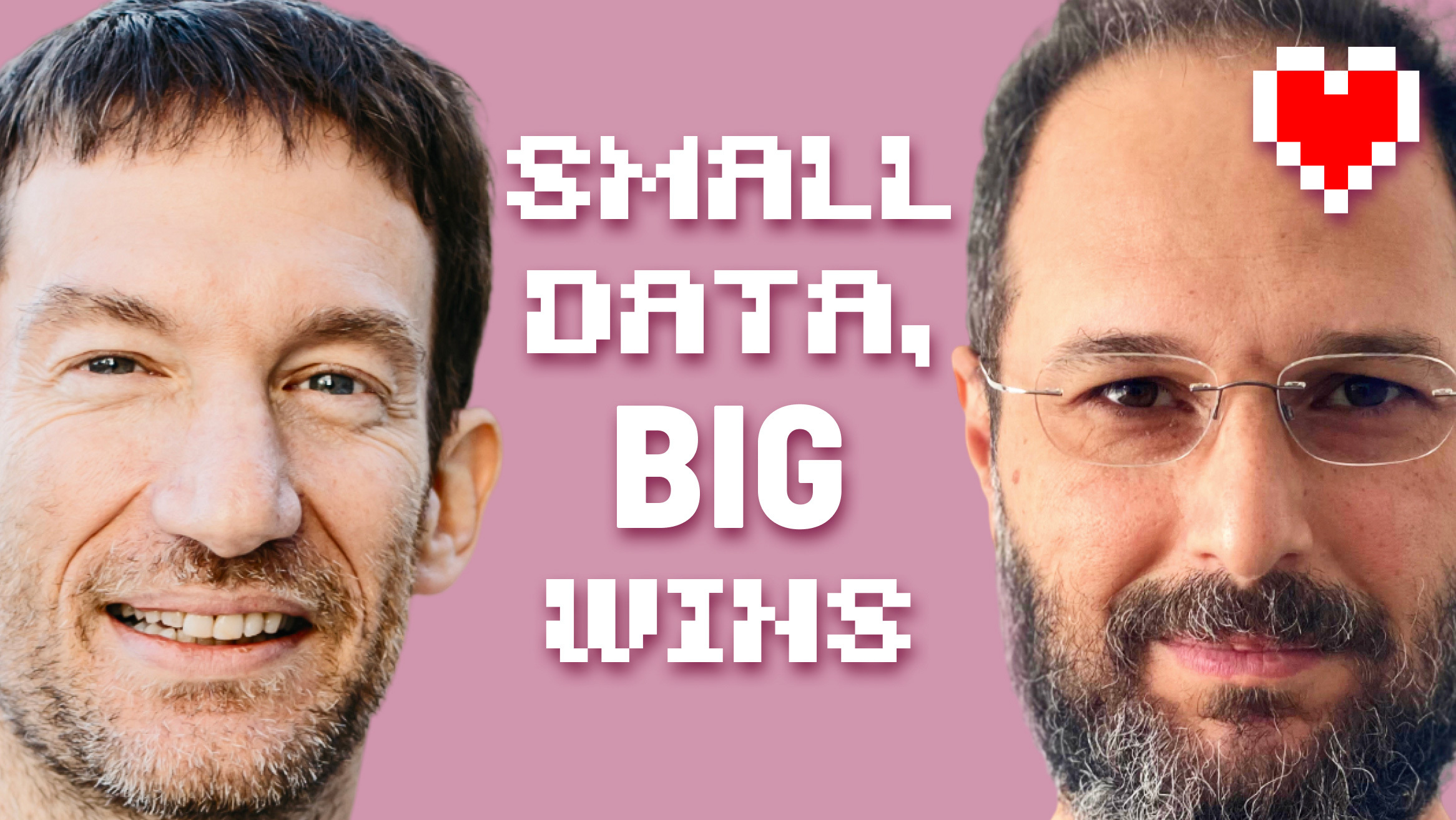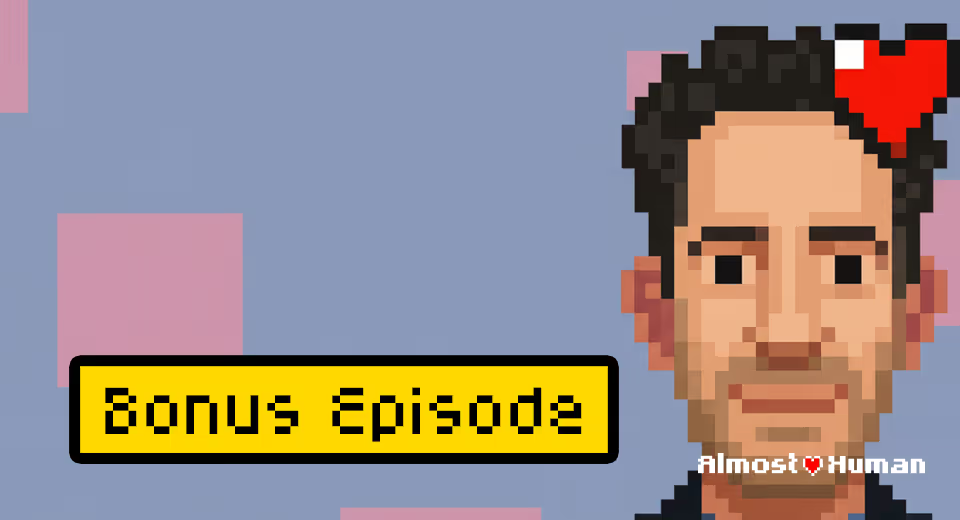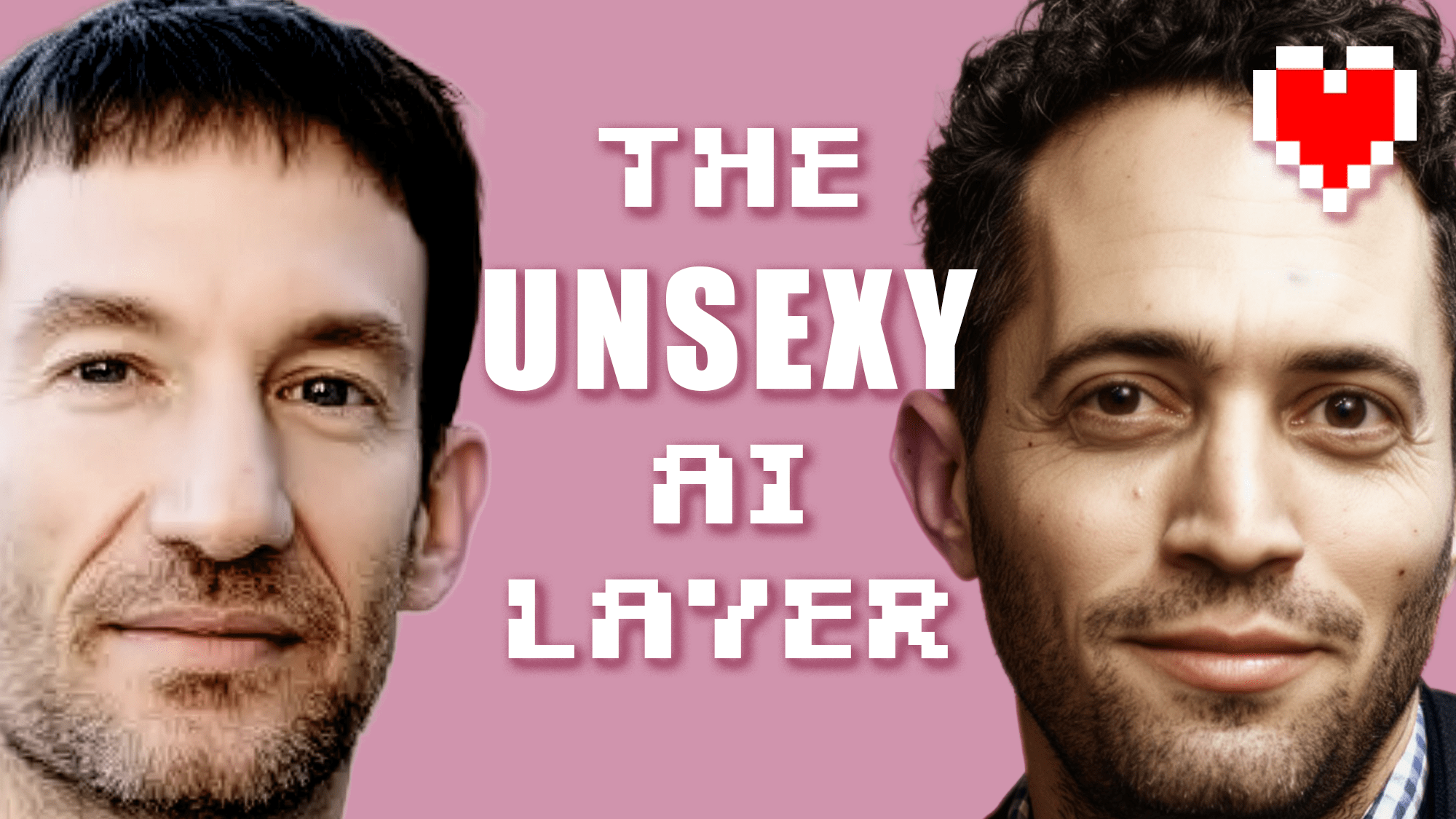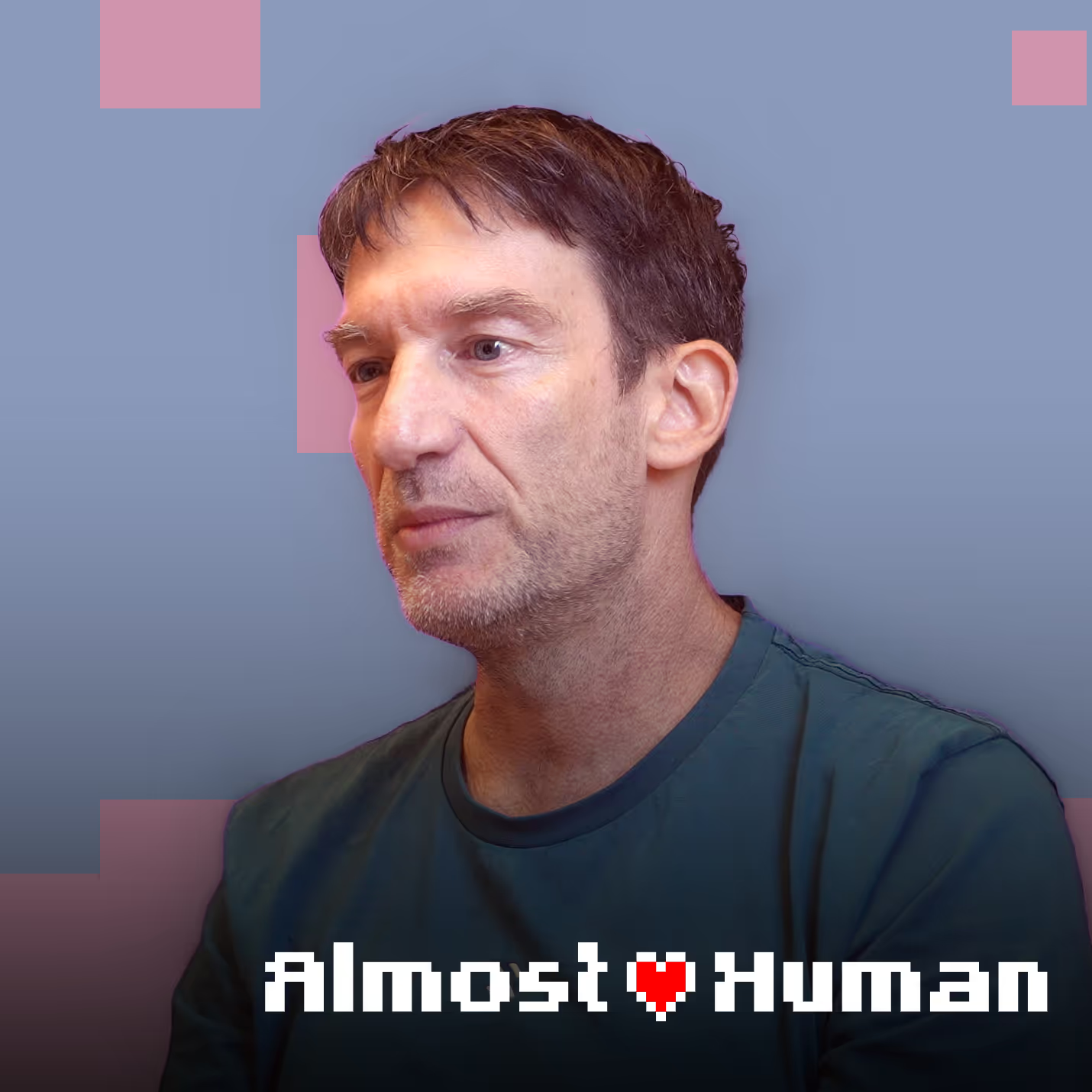Gali Arnon



How can values create value? On this podcast, Michael Eisenberg talks with business leaders and venture capitalists to explore the values and purpose behind their businesses, the impact technology can have on humanity, and the humanity behind digitization.
Gali Arnon



How can values create value? On this podcast, Michael Eisenberg talks with business leaders and venture capitalists to explore the values and purpose behind their businesses, the impact technology can have on humanity, and the humanity behind digitization.
Gali Arnon
Gali Arnon
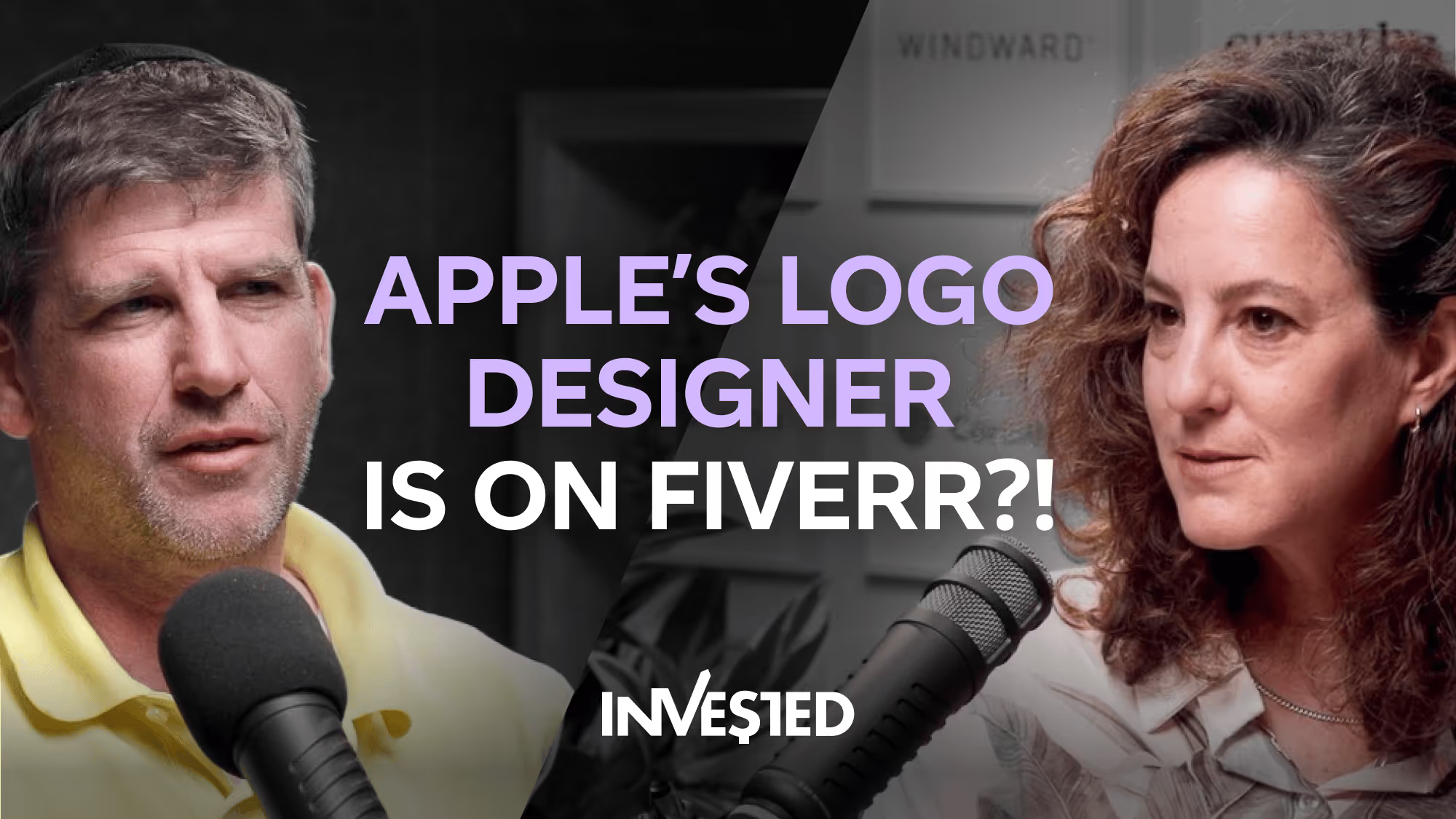
Gali Arnon
Gali Arnon
- [00:00:00] The Evolving Role of the CMO
- [00:03:05] Core Values and Personal Journey
- [00:05:58] Gali’s Competitive Drive and Leadership Style
- [00:09:03] Fiverr Rebranding from $5 Services
- [00:12:02] How AI Is Shaping Freelancing and Work
- [00:15:08] Women in Tech and AI Adoption
- [00:17:58] The Future of Work: Humans vs. AI
- [00:21:08] Embracing Change in the Age of AI
- [00:25:50] AI FOMO and Information Overload
- [00:28:00] Choosing Between AI and Human Services
- [00:35:07] Branding as a CMO in a Changing World
- [00:38:59] Emotional Branding in the AI Era
- [00:46:55] Brand Lessons from Fiverr’s Journey
- [00:51:02] Personal Values and Branding Responsibility
On this episode of Invested, Michael hosts Gali Arnon, former Chief Business Officer at Fiverr, the global freelance marketplace that connects businesses with independent talent. Gali joined Fiverr in 2017 as Chief Marketing Officer, helping lead the company’s transformation into a globally recognized brand and guiding its growth through a successful IPO. She later served as Chief Business Officer, overseeing Fiverr’s core marketplace operations and strategic business initiatives.
Prior to Fiverr, Gali held executive roles at Brightcom, an ad tech company, where she served as CEO, and at 888 Holdings, where she led multiple departments and business units and served as VP of Professional Services. She began her career at Wall Street Institute Israel, eventually becoming its CEO.
Gali holds a BA in Communication and Psychology and an MBA, both from Tel Aviv University, and is a longtime advocate for women in tech and leadership.
Please rate this episode 5 stars wherever you stream your podcasts!
Michael Eisenberg (00:00)
You were the CMO of Fiverr for six years, and we're at a moment in time, it seems, where the role of the Chief Marketing Officer is changing.
Gali Arnon (00:06)
Brands will need to go back to basics.
I really think, and I believe with all my heart, that there's no replacement for human traits or human capabilities.
Michael Eisenberg (00:16)
What's the strangest skill or freelancer that exists on the Fiverr platform?
Gali Arnon (00:20)
Oh my God, It can be very cringe.
When you want to build a brand, you don't build a brand through search results. You don’t.
I want to be a role model for the next generation of women leaders in Israel.
Michael Eisenberg (00:31)
Your mother-in-law! Why your mother-in-law?
Gali Arnon:
Yeah, my mother-in-law, because my mother is already proud of me, no matter what I do.
Michael Eisenberg:
Welcome back to another episode of Invested. I am thrilled to be here with Gali Arnon.
Welcome Gali.
Gali Arnon (00:45)
Hi, I'm thrilled to be here.
Michael Eisenberg (00:47)
It’s great to have you. I'll let you get into your own background. We're going to have a lot to talk about today. We're going to talk a lot about AI also. But Gali is most recently the Chief Business Officer of Fiverr. And will you give everybody else the rest of your background?
Gali Arnon (00:59)
That's true. Yeah, so I’ve actually been in tech companies most of my career, B2C companies, SaaS companies, ad tech companies, so kind of moving between industries. Before that, I actually started as a teacher. I was a psychometric teacher and a gym teacher while I was learning my first degree in psychology and communication. And then the company I worked for, Kidum, she got the right to open a kind of, it was a franchisee. It was called Wall Street Institute. It was a school of English for adults. And I was a Center Director at the age of 24 in Rannana. And everybody told me Raanana is a place where everybody knows English already because it's full of people who made Aliyah from English-speaking countries, and you have nothing to teach them.
But it became the number one center in Israel.
Michael Eisenberg (02:03)
So a woman with an Israeli accent was teaching English to English speakers in Raanana?
Gali Arnon (02:06)
I never taught English. That's the thing. I was the Center Director, was managing the center. I was selling to people English courses. Never taught English myself.
Michael Eisenberg (02:17)
But what did you teach beforehand when you taught?
Psychometric. It’s like Math, and English. For the test, for the GMAT test.
Michael Eisenberg:
Basic English.
Gali Arnon (02:30)
I wouldn't say basic, but it wasn't the main idea. The main idea was how to pass the test, how to pass the test with great results, with great grades. And then I became the CEO of this company when I was 27. And I opened 11 centers around Israel in different malls. Yeah, that was where it all started.
Michael Eisenberg (02:53)
Okay, so I want to come back to this, because I think this is an important topic for today. But before that, what we always start with here is, what are your core values?
Gali Arnon (03:05)
I want to do something, I wouldn't call it a core value, but I would say that my work needs to be meaningful. I need to feel that I'm doing something that is good in the world, that I'm contributing to the world. I need to feel connected from the bottom of my heart. I need to feel it's fulfilling me with pride. When I'm telling my mother-in-law in the shishi dinner about what I do, I want to feel proud.
Michael Eisenberg (03:33)
Your mother-in-law. Why your mother-in-law?
Gali Arnon (03:34)
Yeah, my mother-in-law. Because my mother is already proud of me, no matter what I do. And my daughters, I have three daughters and I want them to be proud of their mom. So that's one, I think this connectivity to what I do, to the mission.
I'm also a person of people. I'm very driven, and I'm a winner. I like to win, really, and I'm very competitive. But also, I see the people on the way. I want them to be part of my journey. And I think I'm doing a good job in inspiring them and making them follow me. Since I was very little, I was always the leader in my group. So I was the leader of the class, and even if I wasn't, I was looking to be the leader. So I think it's in my nature. I don't want to be too arrogant or to sound too arrogant, but yeah, I think it's part of my nature.
Michael Eisenberg (04:40)
What else do you compete in?
Gali Arnon (04:46)
First of all, whatever I do, even when I play a game with my 13-year-old, I will compete with her and I would be extremely, extremely angry if I want to win, and I could act really childish if I don't win. And she always beats me in every game. So it's becoming very tough.
Michael Eisenberg (05:01)
What games do you play?
So we can play Damka, or…
Michael Eisenberg:
Damka is Checkers.
Gali Arnon (05:10)
Yeah, Checkers. And we can play Shabetzna or we can play whatever game–I don't know the names in English.
Michael Eisenberg:
Scrabble.
Gali Arnon:
Scrabble, right. Whatever we play, she usually wins, and I'm usually extremely upset about it.
Michael Eisenberg (05:29)
Where does this competitive drive come from?
Gali Arnon (05:31)
I don't know.
Michael Eisenberg (05:36)
Are you the oldest? Do you have brothers and sisters?
Gali Arnon (05:38)
Yes. I do. One sister, one brother.
Michael Eisenberg (05:40)
Were you competitive with them?
Gali Arnon:
Yes.
Michael Eisenberg:
Are your parents competitive?
Gali Arnon:
Yes. I think what they taught me is that you need to excel in everything you do. You don't compromise on anything.
Michael Eisenberg:
My mother told me I should be mediocre. It's true, by the way.
Gali Arnon (05:55)
Really? In what way? Tell me about it.
Michael Eisenberg (05:58)
My mother used to say that the line between superb, excellent and crazy was very thin.
Gali Arnon (06:05)
Really? That's interesting.
Michael Eisenberg (06:07)
She prayed for mediocre children. And when I was a kid, it really bothered me. Later I came to see the wisdom in it.
Gali Arnon (06:12)
So, yeah, we were not sharing the same perspective. I mean, to be honest, I could bring a 97 in a test home and she would ask me, “Oh, that's great, but what would the others get?”
Michael Eisenberg:
Really?
Gali Arnon:
Yeah. I needed to be excellent in everything all the time. I wanted to be excellent. And there was always another mountain to climb. That was the feeling. There was always another mountain to climb.
Michael Eisenberg (06:42)
That's fascinating. And then you started as an English teacher.
Gali Arnon (06:44)
Not a teacher, I told you.
Michael Eisenberg (06:47)
Well you started as a teacher! Of math and English, teaching for the Psychometric. But very quickly you had to be the CEO.
Gali Arnon (06:50)
Right, because I got... Yeah.
Michael Eisenberg:
So how many people did you compete with along the way in those three or four short years to be the CEO?
Gali Arnon:
I didn't look at it like I'm competing with people on this role. I think I was getting to this center, to this Ranaana Center, and I wanted it to be number one, and I wanted it to show everyone that people will come to study English, even if Ranaana is an English-speaking city in Israel. And then we became number one. And then Israel was not enough. It was, let's win on a global level. Let's be number one in the world.
Although there was always China, which you couldn't compete with in terms of population, right? You can't compare centers in Shanghai to Ranaana, with all due respect. And you can't compare Chinese students studying English. They used to come to the center for 12 hours a day, while Israeli students used to come for an hour. So you can imagine how hardworking they are. Anyway, being this number one was always a motivation, I feel.
Michael Eisenberg (08:03)
And I want to go back to the core value. Erica, who runs our content here, and I were watching a video, in which this guy stood up on stage and said, “Here's how corporate values work. Every company puts up the same five values. You throw all of them in a hat, you pick out five, so you end up with the same thing. And they have integrity, and meaning, and this stuff.” What is a value of yours that you think is different from everybody else in the world?
Gali Arnon (08:29)
Wow, that's a tough question.
Michael Eisenberg (08:31)
How about, compete to win?
Gali Arnon:
I think there are many people that are sharing this value, right? I think I'm competing to win, but I never did it on the expense of other people. I'm not leaving injuries. You say injuries?
Michael Eisenberg:
You don't leave the wounded in the battlefield.
Gali Arnon:
That’s the expression. That’s the phrase.
Michael Eisenberg:
So everyone comes along with you. That's part of it.
Gali Arnon:
Yeah.
Michael Eisenberg:
So I'll come back to that, but that brings me to this kind of complicated time of year. Why don't you describe to everyone what Fiverr does?
Gali Arnon (09:03)
Wow, Fiverr is amazing, and it is a transformation–
Michael Eisenberg (09:08)
How long have you been at Fiverr?
Gali Arnon (09:26)
I've been at Fiverr for seven years.
Michael Eisenberg:
Seven years.
Gali Arnon:
Yeah. I recently left Fiverr, and now I'm an advisor to different startups, but I joined when the company was quite small, around 250 employees, before it was public. Still startup mentality.
The marketplace, the Fiverr marketplace was identified, known for $5 cheap stuff you can buy on the internet. Risk of error was nothing. It's grown up to this amazing company that is basically providing an endless amount of services around, I think, 750 categories of services, digital services, from amazing freelancers all around the world. The talent on Fiverr is just absolutely amazing. And it allows businesses in all sizes to get access to this global talent, which is quite unique.
Michael Eisenberg (10:10)
What's the strangest skill or freelancer that exists on that platform?
Gali Arnon (10:14)
Don’t take me there. It can be very cringe. Think about the internet. Think about how cringe it is. Let's say our Trust and Safety team had a lot of work to do.
Michael Eisenberg (10:32)
Got it. What's the strangest non-cringe thing that we can kind of still share on…?
Gali Arnon (10:35)
Drone video editing.
Michael Eisenberg:
That's not very cringe.
Gali Arnon:
I mean, when I started, I think it was leaning towards really crazy stuff. People who will read in your coffee or will give you really crazy stuff. So love potions….
Michael Eisenberg (10:41)
For $5.
Gali Arnon (11:04)
Yeah, for $5. It’s working, tried it. I really tried it. I said, I need to try everything. I tried this as well. And I'm married for more than 20 years.
Michael Eisenberg (11:17)
Obviously it's working.
Gali Arnon (11:30)
But we also have data scientists on Fiverr.
Michael Eisenberg:
Not for $5 though.
Gali Arnon:
Far from it. That was the journey actually, moving away from this $5 perception, offering more complex premium services from top talent.
Michael Eisenberg (11:38)
So I looked at Fiverr in the very, very, very early days.
Gali Arnon:
Yeah, I know.
Michael Eisenberg:
In the very early days. And I did not invest, partially by the way, because of the Fiverr that I thought was unscalable. So you proved me wrong, you and Micha and Shai and everybody else was along for the journey there. How did you take it out of this category of $5 doodles, and love potions, and cringes to everything from data science? Take us through that brand journey.
Gali Arnon (12:02)
I can talk about it for ages.
Michael Eisenberg (12:04)
Do it for a podcast style audience.
Gali Arnon:
I will try. Stop me if I'm getting overreacted. I would say, first of all it's in the name, right? So it's even harder.
Michael Eisenberg:
It’s even worse, by the way, because Fiverr…
Gali Arnon:
It's Fiverr with two R's. And you need to understand that, for example in the UK, Fiverr is five pounds. So you can't get away from it. However, I can tell you that during the years at the beginning, everybody knew Fiverr is five dollars. I remember I was at a conference, I don't remember, maybe in New York, and then someone came to me and said, “Tell me, I'm really curious what Fiverr actually means. Is it a high-five between a freelancer and a business, or a buyer?” And I said, “That's my little win.” When someone was actually wondering what Fiverr is, and he didn't recognize Fiverr for the $5 or pounds–that was my win. So I think first and foremost, we set a clear vision–and the vision was super ambitious.
So even if we are a $5 marketplace today, we know where we want to go.
Michael Eisenberg:
Which was? To where?
Gali Arnon:
First of all, we wanted to be the future of the way people are working. The future of work. So we want to be the ones who are defining the category of the future of work. And in terms of the how, we wanted to be the Amazon of digital services. So on Amazon, you can find cheap stuff, but you can find everything on Amazon, right? And this is what we wanted to be. We wanted to actually take those digital freelancer services, and package them as a service you can buy off the shelf, and you can trust it to be something that will work for you. You can trust the talent on Fiverr. You can trust the services and everything. So I think the first milestone was to set this clear vision.
I think the second thing was to say we are doing it, but we're building a household brand–and we're doing it from Israel. And this is interesting, because the high tech or the tech scene in Israel is known, and was known for many years, for the R&D talent, and for the tech talent, and the data science talent, and for the product. It wasn't known for marketing. I mean, there are great growth teams in Israel and great growth talent, mainly coming from gaming companies. But there wasn't really big household brands that were built out of Israel.
And that was the challenge. And then, it's climbing a mountain and doing it step by step. I'll give you a few sexy examples, okay?
Michael Eisenberg (14:51)
Not cringe, sexy.
Gali Arnon (15:09)
Not co-sexy. No, sexy in a positive, trendy, marketing, sexy way. So for example, we said, we want people to know that you can actually buy good stuff on Fiverr. So we hired Rob Janoff. Do you know who Rob Janoff is?
Michael Eisenberg:
I don't.
Gali Arnon:
Alright. So he's the designer who designed the Apple logo. Do you know the Apple logo? I'm sure you do. So he worked with Steve Jobs to design the Apple logo. And then we said, “Let's bring him on the platform for a month to kind of offer a limited edition of his logos on Fiverr, for $10,000. But he will do it for a month, and we'll do a whole campaign around it. And people will actually say, ‘Well, we can buy a logo on Fiverr from the same guy who actually designed the Apple logo? Well, maybe it's not as low quality as I thought.’”
Michael Eisenberg (15:47)
That's actually an amazing idea.
Gali Arnon (16:04)
Then we did a whole design event in New York around it, and we invited designers. He was on stage, he told his story on how he worked with Steve Jobs and all of it. That was the first move. And then we decided, well, it's working and let's do it in other categories.
We brought Wyclef Jean for the music category, and we bought Eli Roth, which was a horror show, in the horror show business, film business in Hollywood, to do the video editing limited edition. And then we went on and on with different celebrities in different categories and it worked really, really well. And then we did so many other things. And as I said, it was climbing a mountain, but the vision was very clear. There was many different things we did in order to get there. And I think we actually did.
Michael Eisenberg (16:37)
You know what I need to ask you now, right? Who is the celebrity for the love potion?
Gali Arnon (16:41)
Martha Stewart.
Michael Eisenberg (16:45)
That wouldn't have been my first guess.
Gali Arnon (16:47)
No, we actually worked with her a year ago. not on the love potion part. No.
Michael Eisenberg (16:54)
Yeah. All right. There was no celebrity for that. So you have 750 categories on Fiverr. What percentage of them do you think are threatened by AI?
Gali Arnon (17:04)
Yeah, that's a very, very good question. I can't give you the exact number. I would say that the simple tasks that are not involving human creativity, or the need to work in integration with AI and can just be completely replaced, are the ones that will disappear, are gradually disappearing.
By the way, Fiverr is a kind of microcosmos of the whole world of employment, right? I read an article today about the whole research that was done about the pace of jobs that are disappearing. Women, by the way, are the first to be threatened by that.
Michael Eisenberg:
Why are they the first to be threatened?
Gali Arnon:
Because they're working in jobs that are highly or more likely to be threatened by AI.
Michael Eisenberg:
Interesting.
Gali Arnon (18:03)
Interesting, yeah. I can find you the research about it, but it's not surprising that women are the first to be threatened. We did a research on Fiverr at the time, I think it was two years ago when we were trying to understand how fast freelancers are adopting AI technologies. And we saw that women in general are slower in adapting new technologies, and AI specifically.
Michael Eisenberg (18:23)
That's interesting. You're a teacher. Why can't we teach women to adopt AI faster?
Gali Arnon (18:31)
I think it's not about teaching them to learn AI faster. I think it's about maybe an attitude to technology in general. And I think it's about being an early adopter. I think there's something that still, and by the way, it's a symptom of something that is bigger than that, which is–I think in many ways women sometimes, they feel that they don't have the skills or the capabilities in order to learn a new domain, in order to jump on a new challenge. I think it's part of our culture, it's part of our society, and trying to be in my own domain, my own space, someone who's encouraging women to do that. But I would say that there's still–see, how many women founders–you are in the investment space, right?
Michael Eisenberg (19:32)
How many women founders? Very few.
Gali Arnon:
In percentage?
Michael Eisenberg:
Less than 10.
Gali Arnon (19:42)
I would say three percent. Why? Why is that?
Michael Eisenberg:
I've asked myself that question a bunch, as the father of four daughters, I've asked myself that question. I'm in the camp that men and women are different. There's obviously some biological factors that bias us ,and societal factors that have grown to bias us to this. So my guess is it's harder. And I think there is societal expectations around roles that perhaps prevent this as well.
Gali Arnon (20:11)
So I think this is part of the same, so the AI adoption, it's part of the same symptom, which I'm trying to fight in ways that, as a role model, as a manager, as an executive.
Michael Eisenberg (20:29)
Okay, so you're setting up now, instead of setting up the Wall Street English language teaching to people who may speak English already in Raanana, now you're setting up the Institute for Teaching AI Skills to Women. Tell me what you’re going to do.
Gali Arnon (20:42)
Yeah. First of all, remove any barriers or perceived barriers.
Michael Eisenberg (20:47)
What does that mean? How do you do that?
Gali Arnon (20:49)
Just make it accessible.
Michael Eisenberg:
How?
Gali Arnon:
Just show the fundamental, let them try it, let them experiment and show them how beneficial it could be for them. Just remove all perceived barriers that usually exist.
Michael Eisenberg (21:08)
What else? Why are they coming? Why are they coming to a class on how to use AI or get ahead with AI? What percentage do you think of the creators on Fiverr are female versus male?
Gali Arnon (21:20)
I would say it's more male-dominant than women.
Michael Eisenberg (21:22)
More male dominant. And do you see there an adoption of AI that's different between genders or you don't?
Gali Arnon (21:29)
No, not really. The research I told you about was a general research that wasn't done specifically on freelancers on Fiverr. But I would assume that like other technologies, women are slower to adopt them.
Michael Eisenberg (21:44)
Okay. So you said we need to remove barriers and have people actually use the tools of AI. What else?
Gali Arnon (21:49)
For women adaption, specifically? For adaption in general? I would do the show, not tell approach. I think it works in marketing and advertising amazingly well. I would just show people, or show specifically women what can be done. Not tell them about it, not just teach them the principles, and actually show them. So it's not about only teaching them and experiencing, it's about showing the actual deliveries, the actual things you can achieve using AI. I feel this could be very powerful.
Michael Eisenberg (22:29)
So you said before, you're very competitive. But you must look around, especially given your experience, both as a teacher and then running an institution of learning and as an executive, but an executive that looked at the future of work, that there is an oncoming tension, let's call it, between AI and a lot of the people whose livelihood you helped create. Where does that lead you, where does it lead your thinking? I mean, competition, AI will win against some of these people and they might be left behind?
Gali Arnon (22:33)
Absolutely. First of all, they might be left behind. I think we need to accept it, and admit that the future of work is extremely different than what we know it is today. I really think, and I believe with all my heart, that there's no replacement for human traits or human capabilities that can't be replaced by AI. And I'm coming from marketing, I've been the CMO of Fiverr for, out of those seven years, for six years. And the creativity, even sometimes our creative team were actually geniuses in the ideas they brought to the table. Some of the–by the way on this tension between AI, to work and to humans, will not be replaced. And I think there's something in–look at art.
Okay, for example, I just came back from Florence, Firenze in Italy. And I was at the Ufizzi Gallery, where you see where everything really, really started, right? With the Renaissance and all those amazing.
Michael Eisenberg (24:16)
It's incredible.
Gali Arnon (24:32)
Incredible. Can it be replaced by AI? I don't think so. I really don't think so. Will people using AI can create magnificent art? Yes, absolutely. So I think one, there will be capabilities that will never be replaced. And I'm not even talking about physical services, right? It's obvious, right? That when you come to a doctor, sometimes it's not enough just to get the instructions from AI about when you're sick. Sometimes you actually need to see a person, and talk to a person.
There are things that won't be replaced, and there are things that will just get much better with this integration between humans and AI.
Michael Eisenberg (25:02)
Right, for argument's sake, if there's 100,000 freelancers on Fiverr, just use Fiverr as an example, but it's true in life. 50,000 will get better and faster and maybe more profitable using AI and leveraging AI, and 50,000 will be out of work.
Gali Arnon (25:16)
Yes, and another 50,000 new ones joined the platform because they were able to create new capabilities, because of the way they use AI.
Michael Eisenberg (25:25)
And so that's actually an important point, which is, there's a whole cadre of people, not just on Fiverr, but in our life, who will be able to create businesses that they wouldn't otherwise be able to create because they now have five digital workers on AI. How do we get people from here, which is, my God, AI is coming, to there, which is, I can use AI to build a new business?
Gali Arnon (25:50)
Again, think, listen, I'm going back to the show, not tell, okay? I think we are constantly telling people about AI. Think about your LinkedIn feed. Think about your Twitter feed. How do you feel when you go through your LinkedIn? I'm really asking and you see...dizzy, right? Dizzy.
Michael Eisenberg (26:11)
Dizzy. That's what I feel.
Gali Arnon:
Dizzy. You feel FOMO as well?
Michael Eisenberg:
No. I don't have FOMO. Okay.
Gali Arnon (26:17)
Okay, you're unique in this sense. I guess most of the people do have FOMO.
Michael Eisenberg:
Really?
Gali Arnon:
Yes. Oh my God, there's a new technology. Oh my God, there's a new tool. Oh my God, there's a new thing. Wow, I'm missing it. I don't know how to master it. and it's evolving. And every day there's something new, right? And you feel dizzy, or you feel FOMO, or you feel that you're out of the discussion, right? And I guess most of us feel that way. I feel this is not necessarily helping. Seeing all those experts, I did this amazing thing with…no. People need to experience it themselves, and they need to try it with, and this is what I would do. I would actually let people try it.
Michael Eisenberg (27:00)
So you’re going to set up an institute, a place where people can come to and hack together using AI?
Gali Arnon (27:06)
Right, without any FOMO, without the fear of not being included in this party, right? Because it's a hell of a party. Seriously.
Michael Eisenberg (27:15)
What do you have FOMO with?
Gali Arnon:
Nothing, really. Just when my daughters are in somewhere really important and I'm not there. That’s the main FOMO.
Michael Eisenberg:
You want to go back to school?
Gali Arnon (27:30)
No. One of them is already in the army. Another one is starting shnat sherut–
Michael Eisenberg (27:32)
A gap year of service.
Gali Arnon:
Yes. And then she's going to go to be a video, actually, photographer in the IDF spokeperson’s office. And when I mean that I'm not there with them, it's mainly when they have something important and I'm not necessarily there. It's not about being in school. That's my FOMO.
Michael Eisenberg (28:06)
I want to go to the other side from the freelancers, which is, think about customers for a second. Okay, so customers, not just of Fiverr, but if I'm a customer today, and I have a choice between the human and AI to do my work. Now, you said there are unique human skills, but I'm faced with that. And we just had, for example, Toby Lutke of Shopify, who just said, before you come to me for resources–
Gali Arnon (28:29)
Try to do it with AI first.
Michael Eisenberg (28:31)
Try to do it with AI. So if I'm a customer now, and I'm thinking of going to Fiverr, or going to Upwork or going to, it doesn't matter, or going to the corner barber store–actually the barber I can't do with AI yet–and I say AI or human? How do you think people are thinking about that right now? And how fast is it happening that they're making the AI decision?
Gali Arnon (28:54)
I think it really depends on what they're looking for. If they're looking for something fast, cheap, and that might be generic, which by the way, is taking us back to the $5 story because the $5 solution was a low risk of error, right? It was cheap. It was very fast compared to the alternatives, which was go to a freelancer offline, try to negotiate, yada yada yada. It takes a lot of time. So it was fast, it was cheap, and it was probably generic or low quality, right? This is what you would get. Now I'm not saying AI is low quality, don't get me wrong, but it's cheap, it's fast. I'm not sure how unique it's gonna be.
Michael Eisenberg (29:41)
So it's commoditizing things. So if I need a commodity, go to AI.
Gali Arnon (29:44)
So if you need now a new logo for Aleph, it depends on your...
Michael Eisenberg (29:51)
We’re high-end, okay? The people who created logo are sitting right here, okay? So be careful.
Gali Arnon (29:57)
So this is what I'm saying. I think it's replacing the old $5 services on Fiverr.
Michael Eisenberg (30:03)
Do you have subscriptions to any of the AI services?
Gali Arnon:
No.
Michael Eisenberg:
Interesting. To none of them?
Gali Arnon:
No.
Michael Eisenberg:
Why?
Gali Arnon (30:17)
I don't really know. I'm using the free version of ChatGPT. It's working for me, and it's enough.
Michael Eisenberg (30:26)
What do you use it for?
Gali Arnon:
Everything.
Michael Eisenberg:
What's everything?
Gali Arnon:
I think it replaced Google for me for 80% of what I'm looking for.
Michael Eisenberg:
So you’re using Google 80% less now?
Gali Arnon:
Yes.
Michael Eisenberg:
Wow. And you're happy not to see the ads too, right?
Gali Arnon (30:38)
I wouldn't say I'm happy not to see the ads. And I would say it's just, it's faster, it's more organized. It's not about the ads, really. Think about it really, between us, okay? The sponsored ads on the top of–I was paying a lot of money as a customer over the years. So yeah, it's very native in the way it's structured, right? Sponsored. It is very relevant, and it is taking conversion into the calculation of what you actually see, or the results that are being displayed before the organic results. So it wasn't that bad. It's not intrusive ads that comes in the middle of a YouTube video that you want to watch. It's not the same. Google Search is quite a native experience. It's not intrusive in terms of the ads.
Michael Eisenberg (31:30)
But you are a marketer for what I would call the golden years of Google, right? Where you could just buy traffic on Google, and buy it on Facebook. Now people are going to ChatGPT or Perplexity or Grok. And if people are taking 80% of their searches off of Google and doing them in ChatGPT–
Gali Arnon (31:45)
I'm not sure the 80% is precise, .
Michael Eisenberg (31:47)
Let's just say it's headed there. How is a company Fiverr or anybody else who is used to marketing through these digital channels going to capture customers?
Gali Arnon (31:55)
So first of all, every marketeer in the world is now thinking about it and working on it. At the end of the day, the way Google presents the algorithm, the way it presents the results is about relevancy, authority, conversion. All those things will determine your appearance on the search results.
And I'll tell you something. When you want to build a brand, you don't build a brand through search results. You don't. Because it's only for the people who are already looking. So it's about getting the demand that is already there. You're not building a top of mind brand through Google search results. So that's one. The number of channels that are now accessible or relevant for a marketeer are far more diverse than just Google search. And Google search is only good for the people who are already looking.
Now, if you think about it, all those AI models are using the same data that Google used to, in a different way, right? The calculation is different, but that Google used to use, right? Its relevancy, its accuracy, conversion probably not yet, maybe in the future, but you’re probably gonna hear about Fiverr even if you look at AI, on ChatGPT or on any other model, because it's one of the biggest brands out there. So you'll hear…
Michael Eisenberg (33:21)
You're making an important point though, which is, tell me if I'm putting words in your mouth–in the era of AI brand building is much, much more important perhaps than in the era of, call it internet search. Because in internet search, you could kind of buy your way to conversion even if you didn't have a big brand. But if you don't have a big brand and a big presence in the data that's being collected by ChatGPT.
Gali Arnon (33:44)
If you're not a thought leader–by the way, I believed in this statement 10 years ago as well, when Google search was at its best. You don't build a brand on top of Google search. You don't.
Michael Eisenberg (33:56)
Some people thought you didn't need to build a brand.
Gali Arnon:
Although, and I'm using a lot of very definitive statements–look at Booking. It's a different example. Let's talk about Booking for a second.
Michael Eisenberg:
The travel company, Booking.com.
Gali Arnon (34:12)
Right, so 12 years ago, 15 years ago, they started to build a brand dominating Google search results, and they did nothing in brand building. But because the way people are looking for hotels or for anything that has to do with their vacations is on Google, dominating Google search was brand building. Because if you are not, if this is 90% of the way people are searching, and you are always number one–nd I think they were moving between being the first number one advertiser in the world to the second number two–but anyway, they were paying Google the most. That was brand building in its own way, right? But for other brands that are not only, that customers are not getting to your service through search alone, I feel it's not enough and especially today.
Michael Eisenberg (35:07)
A perfect segue, because you mentioned before, you're the CMO of Fiverr for six years, and we're at a moment in time, it seems, where the role of the Chief Marketing Officer is changing. I just said a second ago, brand building feels even more important than perhaps it ever was. There is a multiplication of channels through which you go, linear TVs going down, non-linear video streaming, Netflix, just as an example, is going up, but it's hard to access customers in those places. Help me think about how the role of the Head of Marketing, Chief Marketing Officer is changing, and where you think this is in five to 10 years.
Gali Arnon (35:49)
I was lucky enough, or old enough, to be a marketer even before the internet started. What we had is what we used to call offline advertising and online advertising, or below the line and above the line. That was the terms.
Michael Eisenberg (36:07)
I'm old enough to remember that too, but I won't tell anyone.
Gali Arnon (36:10)
No, that's surprising. Listen, I went to the university, my first degree was in psychology and communication and there was a guy, you probably know him, his name was Marshall McLuhan and he said the medium is the message, right?
Michael Eisenberg (36:29)
He and I are not the same age, or we're not the same age. I didn't know him because we were peers or anything like that ...
Gali Arnon (36:31)
Okay, fine, no, no, that's not what I thought. You probably know him because he's a known guy, right?
Michael Eisenberg:
For one line.
Gali Arnon:
Yeah, for one line. Yeah. It's one song, a singer with one song, with one hit. But that's a very known line, and it's very true. It's very true. Think about the way you consume TikTok today, right? So the message has evolved, but it's a message, right? You need to motivate people. need to make them your brand, you to create emotions around your brand. It's the same mechanism, okay? People are the same, their psychology is the same, although it's changing with technology and social networks. The medium is different, the channel is different, and it's dictating the way we are designing the message, the creative and everything.
I think, and I went through this–a marketeer that needs to be really innovative with the creative, to a very data-driven marketeer where he needs to understand the data, and the pixels, and all the technology behind it. And I think there will be some retro in this sense, a bit because of this brand building, because you want to build authority, because you want to be a thought leader in your own category, in your own domain.
I think there's going to be a bit of going back to the basics of truth in many ways, of creating emotions in a world where there's so many messages and you feel dizzy every time you open your LinkedIn. Brands will need to go back to basics. I think that would be important for marketers and executive marketers.
Together with mastering all the new channels, making sure you understand now, it's been about celebrities, right? We talked about celebrities, and then it moved to the one who carries your message. Influencers were the thing. Now it's UGC. You don't even need to be an influencer anymore. You can be a really cute guy who knows how to stand in front of a camera, and it's enough. And then you need thousands of UGCs in order to have a really strong machine, in order to test all your creatives. So I think that's obviously something you need to master. It will change, it will keep on evolving really, really fast. The back to basics is what's important in my eyes.
Michael Eisenberg (38:59)
So I think that's a pretty profound point, which is even with the advance of technology and AI, and you said, the dizzying environment of the information overload of the internet, brand building will go back to basics. The ‘Just do it’ of Nike. As a kid I remembered, although I don't drink this stuff, the Maxwell House smell of the coffee is pulling that emotional tug and creating a deep resonance.
Can AI be used to do that, given what you said about it being creating commodity content?
Gali Arnon (39:37)
I think AI can help do it, I'm not sure it's going to be the leader behind it. I think a human will be the leader behind it. You need to create content that will stand out. Think about it. Standing in this dizzy world of overload of information, you need to stand out.
Can AI stand out? I don't know, I'm asking you.
Michael Eisenberg (39:59)
I think in some ways it can.
Gali Arnon:
How can you make AI stand out?
Michael Eisenberg:
I agree with you, there's a lot of commodity drek out there created by AI. But I think if you work it hard enough and prompt it enough and poke it enough, you can actually create some pretty stunning stuff.
Gali Arnon (40:17)
That's the human behind it.
Michael Eisenberg:
I agree with that.
Gali Arnon:
It's not enough. You just use generic prompts, and you don't work hard enough, you will get the same...
Michael Eisenberg (40:26)
I just created a pretty in-depth document on a somewhat esoteric topic, used three different AIs, prompted it, pushed it back, challenged some of the sources, and I think we have a good four-page piece of research. But it took a lot of work.
Gali Arnon (40:42)
And you have a lot of brain power behind it.
That was a compliment.
Michael Eisenberg (40:50)
I appreciate it. What's the most iconic brand in your mind right now, that kind of is retro, kind of pulls on people's emotions and does the right thing? Because Nike's going down on this.
Gali Arnon (41:01)
That’s Amazing. I mean, they left the stage empty. Listen, Apple for me is still a very iconic brand. I mean, I went now, I was in Rome now, went outside one of their shops–it still stands out. It's so different. It's so sleek. And it's so, so Apple. And it still resonates. It still drives emotion when you, you still feel it's the best out there that you can get. I'm looking at my daughters, the way they're thinking about Apple compared to other phones. It's working. And it's storytelling. And it’s working.
I read this amazing, I kind of interviewed–we were now in a vacation with, as I said, in Rome, in Italy, with my extended family. And I interviewed my niece. Niece, do you say? No, my nephew. And they're all crazy about Duolingo.
Michael Eisenberg (42:15)
Oh, Duolingo. Yeah.
Gali Arnon (42:17)
And the way they build the brand is fascinating to me.
Michael Eisenberg:
I agree. And then they killed the bird, brought him back.
Gali Arnon:
Yes, they know how to speak the language of kids. Kids resonate with them. And I asked them, “Do you study any language with Duolingo?” And they said, “Yes, of course, French.” And I said, “Seriously, are you studying French with them?” And he said, “Yeah.”
“And how do you know about Duoloingo?” And he said, “Well, everybody knows about Duolingo. It's just there. Everybody knows.” Everybody knows. And I'm not talking about an 18-year-old or 20, they're 10 or 12. And I think for adults to be able to crack a brand for kids, it's not an easy task.
Michael Eisenberg (42:55)
I agree.
Gali Arnon (43:13)
I'm fascinated by the ability to do it through TikTok alone. And that was the main channel they used.
Michael Eisenberg (43:22)
You've written about or said, you did an interview, I think it was something called the Creative fFctor, that everybody is their own brand and the world is moving to personal brands. People like you and me who need to create their own personality in the digital space. What's your personal brand?
Gali Arnon (43:44)
That's the thing, I'm very bad at social networks.
Michael Eisenberg (43:47)
You're never there, as best I can tell. You're barely there.
Gali Arnon (43:51)
I'm there, but I'm passive. I'll go back from a vacation. I won't share pictures of my kids, my family. I won't share my personal experiences. I would usually share achievements of my team on LinkedIn, but again, not frequently. And I think my personal brand was just–I'll give you an example, okay?
When there was this competition–I like competitions, as I said–which is the Geektime Awards, I think. And they have this, every year they give awards to the CMO of the year. And I got this prize twice, in 2019 and then in 2021, I think. And I was very surprised, because I never used to talk about what I do on social networks, and I never used to kind of talk about–it wasn't clear to me how they even gave it to me. And apparently people know. And so I think my own personal brand is just because I work hard and…
Michael Eisenberg (45:08)
But what is it? What is the personal brand of Gali?
Gali Arnon (45:09)
Oh what is it? I think, listen, and I'm so privileged and thankful for that. I think that the Fiverr recent journey was an amazing journey in the sense that we were able to bring together as a team, with Micha obviously and the other senior management members and my team, we were able to build an iconic brand. And I think this is part of my heritage.
Michael Eisenberg (45:37)
What's your personal brand? You talked about your personal brand. Everyone needs to build their personal brand now.
Gali Arnon (45:41)
Hmm, my personal brand. What's your personal brand?
Michael Eisenberg (45:45)
I think I'm asking the questions.
Gali Arnon:
I took a political approach to this.
Michael Eisenberg:
I think my personal brand includes talking about what are timeless biblical values in modern economics, and empowering people to earn a better living, and being a family man. At the top of my LinkedIn page it says father, grandfather, husband, and then a venture capitalist. That's not–
Gali Arnon (46:12)
That's very nice. Inspiring. Okay, my personal brand. I'm a mother, a proud mother for three daughters. I want to be a role model for the next generation of women leaders in Israel. And I want to be someone who inspires women to break barriers, and break the glass ceiling, and dare and take risks.
That's something that is very important to my heart. I'm a Zionist, although I'm very secular, but I'm very connected to this place. Yeah, that's what I would say.
Michael Eisenberg (46:55)
You were CMO of Fiverr for six years, and I want to go back to a time that is changing, that this whole world of branding is changing. You mentioned that you were recognized by GeekTime. What was it about what you did there that was different, and stood out in the role, is what I'm interested in?
I think this is a time, I think you're right by the way, that the retro is kind of coming back. Brands, and emotional brands, and none of this kind of–my partner Bill Gurley at Benchmark used to call it the ‘crack cocaine’ of search engine marketing. You actually have to do the hard work of standing out, and being different, and creating a long-term lovable brand. And Fiverr's created a brand, unquestionably. But what did you do that was different, that worked?
Gali Arnon (47:44)
First of all, we created a very, very strong growth machine. And that's the fundamental, right? You have to have a very strong data-driven, excellent growth machine with all the relevant channels. You need to be very diversified. You need to test thousands of creatives in order to find what's working. You need to be data-driven. You need to know how to measure.
This we do, we did. And I think many companies are doing it today, and they're doing it quite well, specifically in Israel, but not only. But we were looking to be different all the time. In every campaign, in every creative that we used, we thought, how can we be more provocative? How can we create a message that people will not be indifferent to?
Michael Eisenberg (48:36)
How’d you manage actually to do that?
Gali Arnon:
Just challenge them, and show them that it's fine to take risks.
Michael Eisenberg (48:43)
When people took a risk and failed, how did you react?
Gali Arnon (48:45)
I told them that we need to learn from that, and to improve, and do it better next time. And that we're together in it, that I'm taking responsibility, that we're part of, we're all part of this shit show.
Michael Eisenberg (49:03)
Earlier in your career, you were an executive at a casino company.
Gali Arnon (49:07)
Yes. Apropos talking about values and...
Michael Eisenberg (49:12)
Well, and being competitive, right? It's hard to bring the winners along in the casino game because the house always wins, right? How did that line up?
Gali Arnon (49:21)
Yeah, that's a good question. At the time when I joined 888, we're talking about 888, right? It was, I think, the only internet company in Israel. Gigi Levi-Weiss was the CEO, you probably know him?
Michael Eisenberg:
Well. Good friend.
Gali Arnon:
Adi Sofer, which is a very good friend of mine and was my boss at Kidum, because she was the CEO of Kidum and she kind of exposed me, taking me from being a teacher to being–was the first to believe in me, I would say.
Michael Eisenberg (49:58)
She's now the head of Facebook in Israel.
Gali Arnon (50:00)
Right. And she joined 888 as well. And she offered me to join this company that was, it was enough to go into their offices. Something was vibrant, and cool, and data-driven, and the level of talent that was there was just unbelievable. And I think part of the story was that we are an entertainment company and it's games.
And I have to tell you that, it was all of it, right? It was a smart group of people, very talented, and it was data-driven, and has a lot of resources. And it was different from anything I did before. And it was the head of the caravan, in terms of technology. But at the end of the day, we were selling casino. And there was a time where I felt that I can't do it anymore. And by the way, this is one of the reasons I left, because, going back to those Friday dinners, shishi dinners, and to my daughters, I wanted to tell them with pride that this is what I do. And at some point, it didn't feel that. But it was the best school for performance marketing ever. And everything I know about the digital world started there.
Michael Eisenberg (51:25)
Yeah, so many people in the performance marketing space have come out of there.
Gali Arnon:
That's true.
Michael Eisenberg:
It's quite, it's actually quite incredible. And by the way, so many leaders of the current generation of these consumer companies like yourself have all come out of there, which I find to be fascinating. But maybe now I understand why it took your mother-in-law some time to come around.
Michael Eisenberg (51:49)
And your mother was still proud of you when you were there?
Gali Arnon:
Yeah. My mother is always proud of me.
Michael Eisenberg:
Okay. So I’d like to finish with a few kind of lighter questions. What's the strongest opinion you've held that you've changed over the last year?
Gali Arnon (51:51)
Up until I think a year ago or two years ago, I could imagine myself relocating or living in another country. And I'm not saying only for the short term, but actually living in another country. And I think what happened to me in the last two years is that, and they've been the most difficult years I've ever experienced in this country, even before that, three years, because it started with the protests–I was very involved with the protest, and I felt awful being part of this environment in Israel–and then the war and the 7th of October. I can't imagine myself living in another country.
Michael Eisenberg (52:49)
Last question for you. Who's so–Okay. you can keep going. You want to say something else?
Gali Arnon (52:51)
Yeah, I want to ask you the same question.
Michael Eisenberg:
What opinion of mine has changed?
Gali Arnon:
Yes, in the last year.
Michael Eisenberg:
Two things that are connected. And I wrote about this in my most recent book. I've often had questions about the general direction of the welfare state. But I believe the welfare state, the way we know it, not just in Israel, but in Europe and the United States is finished.
Gali Arnon:
Really?
Michael Eisenberg:
Yeah. And number two, and this has changed for me probably over the last couple of years, and not just because of Israel, is that countries need to maintain their core values and that that needs to be a critical component of whether people get the benefits of the state.
Gali Arnon (53:36)
Can you explain?
Michael Eisenberg (53:38)
Yeah, living as a citizen of a country has responsibilities and not just rights. I've written about this, by the way, for a decade, that core to being a citizen is responsibilities and not rights. And I think the change that's happened in my own head is that responsibilities will confer the benefits of citizenship. And if you don't take responsibility, you can't get as many benefits of citizenship of a country.
Gali Arnon (54:05)
I can see how it's very, very relevant to…
Michael Eisenberg (54:08)
It's relevant, I think, globally right now in many ways, countries defending their national cultures. And I think a long time ago, that was called far right, and I don't think it's true anymore. And so I think countries that want to maintain their culture and their freedom need to defend themselves also.
What's something nice you want to say about somebody in our space that doesn't get enough recognition?
Gali Arnon (54:34)
I want to say something nice about two amazing ladies. One is called Naama Lahav, and the other one is called Yael Meiro. And they're both from Meta, but under the inspiration of Adi Sofer, they created an amazing program called Shishi seven years ago, which I'm not sure you know about.
Michael Eisenberg (54:57)
I don't.
Gali Arnon (55:01)
And this is why I want to talk about it, because I think more people should know about it.
And it's an amazing program where they were able to gather amazing mentors from, Israeli women mentors. Women like Dana Weiss, and Rakefet HaKaminoach and Tamar Yesour and now Yael Harad.
Michael Eisenberg (55:17)
So just to tell people, so Dana Weiss is a media personality. Raque Fetusekaminok was the CEO of Bank Leumi, and today a venture capitalist at Team8 and Ella Rod was a judoka, I think, a judoka Olympic medalist.
Gali Arnon (55:28)
Yes, and she's now inspiring many other athletes, women athletes around Israel. And there's many, many more. There's a long list of unbelievable women that are–and also, I was privileged enough to join this program three years ago as a mentor. And we are giving mentorship, training or advice to the next generation of women leaders in Israel. So every year there's thousands of women that are applying for the program. Every year, you get new women that you meet with often, at least 12 times a year. And this creates amazing relationships and allies. And I think this is what women need. They need more women, other women as role models, as allies to be stronger. So I really want to say how much I appreciate this effort.
Michael Eisenberg (56:34)
Amazing. Gali, thanks for coming on Invested.
Gali Arnon (56:37)
Thank you. I really enjoyed it.
Michael Eisenberg:
If you enjoyed this episode with Gali, please rate us five stars on Apple Podcasts, and Spotify, and wherever else you listen to us, and subscribe to our YouTube channel so you can continue to get this great content.
Follow Gali on LinkedIn
Subscribe to Invested
Learn more about Aleph
Subscribe to our YouTube channel
Follow Michael on Twitter
Follow Michael on LinkedIn
Follow Aleph on Twitter
Follow Aleph on LinkedIn
Follow Aleph on Instagram
Executive Producer: Erica Marom
Producer: Yoni Mayer, Myron Shneider
Video and Editing: Ron Baranov
Music and Creative Direction: Uri Ar
Content and Editorial: Kira Goldring
Design: Rony Karadi
Follow Gali on LinkedIn
Subscribe to Invested
Learn more about Aleph
Subscribe to our YouTube channel
Follow Michael on Twitter
Follow Michael on LinkedIn
Follow Aleph on Twitter
Follow Aleph on LinkedIn
Follow Aleph on Instagram
Executive Producer: Erica Marom
Producer: Yoni Mayer, Myron Shneider
Video and Editing: Ron Baranov
Music and Creative Direction: Uri Ar
Content and Editorial: Kira Goldring
Design: Rony Karadi

